Tobin tax
description: a proposed tax on spot currency conversions, named after economist James Tobin, aimed at reducing volatility in foreign exchange markets
44 results
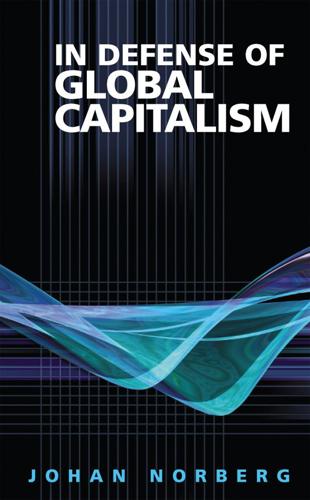
In Defense of Global Capitalism
by
Johan Norberg
Published 1 Jan 2001
So in most countries controls become an incentive for corruption, and different people are treated differently by the law. Tobin tax One proposed capital regulation that has achieved popularity in recent years is the so-called Tobin tax, named after Nobel laureate economist James Tobin, who first suggested it. The Tobin tax is a low tax of 0.05–0.25 percent on all currency exchange, which is advocated by the ATTAC movement among others. The idea is to slow down capital movements and make investors think twice before allowing capital to cross currency exchange boundaries. It’s argued that in this way harmful speculation and major exchange crises could be avoided. Criticism of the Tobin tax has focused on the impossibility of introducing it.
…
But there is a more serious objection to the Tobin tax: even if it were possible to introduce, it would be harmful. This tax would actually be more harmful to the financial market than regulations by individual countries. The only effect of the latter is to reduce inflow in the country opting for them, whereas a Tobin tax would reduce turnover and the possibility of external financing all over the world, even for countries in great need of such financing. Obstacles to the movement of capital fence it in where it is already—in the affluent countries—and the Third World is the loser. The Tobin tax, therefore, is not really a tax on capital but a tariff that makes trade and investment more expensive.
…
The Tobin tax, therefore, is not really a tax on capital but a tariff that makes trade and investment more expensive. Advocates of the Tobin tax claim that it need not have this effect, because it is so low. For long-term investments the cost will be negligible. But the problem is that an investment is not just one transaction. An investor may perhaps partially finance a project, recoup some of the money in profits, increase the investment if it is successful, transfer earnings to other parts of the operation, add capital, buy components from abroad, and so on. With every little transaction taxed, the total cost of the Tobin tax will be many times greater than the low cost suggested by the percentage figure on paper, and so doing business in one’s own currency and in one’s own region will be more profitable.
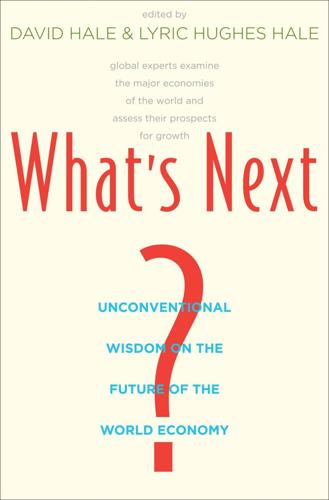
What's Next?: Unconventional Wisdom on the Future of the World Economy
by
David Hale
and
Lyric Hughes Hale
Published 23 May 2011
The 2007–2009 global financial crisis also brought renewed attention to the Tobin tax idea. In November 2010, the European Commission announced that it supported a financial transactions tax (FTT) at the global level, but a financial activity tax within Europe. Apparently, Germany and Austria support the FTT, but others may not agree. The FTT would be pushed to assist development aid and climate change within the G-20 forum. Among emerging markets, Brazil, Venezuela, and Argentina have also displayed support for some form of a Tobin tax. Support for the Tax Is Found in an Unlikely Location Strangely enough, the idea of the Tobin tax seems to have resonance in the United Kingdom.
…
He believes that such actions will only impede the recovery of the global economy and set the stage for more capital erosion through loan losses. Andrew Sheng offers the case for a Tobin tax to finance global public goods. He reviews the origin of the idea in the 1970s and the recent proposal of it by Lord Adair Turner of the Financial Services Authority in London. Sheng says that the world is caught in a collective action trap that encourages a race to the bottom for financial regulation and taxation. He believes that a Tobin tax offers many advantages, including money to finance global public goods, increased data availability on financial transactions, and a tax on bank profits to reduce the bonuses that encourage speculative activity.
…
Nout Wellink, “The Group of Governors and Heads of Supervision Reach Broad Agreement on Basel Committee Capital and Liquidity Reform Package” (press release, Basel, Switzerland, July 26, 2010), http://www.bis.org/press/p100726.htm. 18 THE TOBIN TAX: CREATING A GLOBAL FISCAL SYSTEM TO FUND GLOBAL PUBLIC GOODS Andrew Sheng The Tobin Tax: Sand in the Wheels of Speculation In the early 1970s, when the US dollar abandoned convertibility against gold and ushered in the era of flexible exchange rates, Yale economist and later Nobel Laureate James Tobin suggested a tax on currency trading to “put sand in the wheels of currency speculation.”
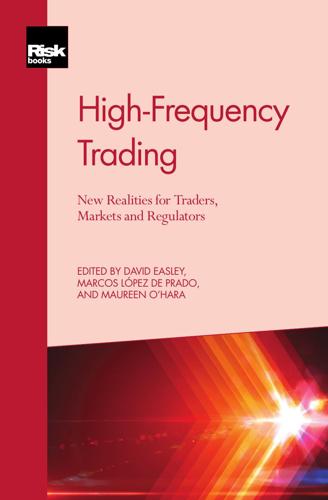
High-Frequency Trading
by
David Easley
,
Marcos López de Prado
and
Maureen O'Hara
Published 28 Sep 2013
Exchanges cap the number of orders that highfrequency traders can submit or charge them additional costs. The most extreme form of regulation is the so-called Tobin Tax, a small fee on transactions of financial securities. France is the first European country to impose such a transaction tax, which amounts to 0.2%, to be paid on all transactions by companies headquartered in France. Becchetti et al (2013) analysed the impact of the introduction of the French Tobin tax on volume, liquidity and volatility of affected stocks and documented that the tax has a significant impact in terms of reduction in transaction volumes and intraday volatility.
…
HFT now controls the liquidity provision process, and over 70% of all US cash equity trades involve a high-frequency counterpart (Iati 2009). HFT participation in futures is similarly important, with an estimated 50% or more transactions involving HFT. While debates rage over regulatory control, there is little consensus as to what is desirable, or even feasible. National Tobin taxes are doomed to fail, and an international agreement is unlikely. It is not even clear that these measures would do any good, other than change the rules of the game, to which HFT strategies can easily adapt. An alternative that seems closer to the core of the HFT paradigm is a tax on FIX (Financial Information Exchange) messages (as opposed to a tax on transactions).
…
There is a natural balance between HF traders and LF traders. Just as, in nature, the number of predators is limited by the available prey, the number of HF traders is constrained by the available LFT flows. Rather than seeking “endangered species” status for LF traders (by virtue of legislative action like a Tobin tax or speed limit), it seems more efficient and less intrusive to starve some HF traders by making LF traders smarter. Carrier pigeons or dedicated fibre optic cable notwithstanding, the market still operates to provide liquidity and price discovery, only now it does it very quickly and strategically.
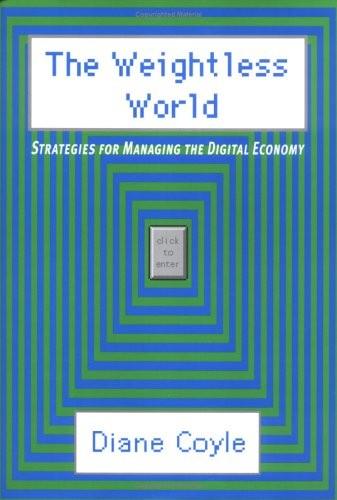
The Weightless World: Strategies for Managing the Digital Economy
by
Diane Coyle
Published 29 Oct 1998
It could also raise a lot of money — a tax rate of 0.5 per cent would raise $150 billion a year world-wide on one estimate.6 Free-market critics of a Tobin tax rely on the argument that it would be hard to enforce because either traders would switch their business to the sort of haven like the Caymans or Bermuda that would be bound to opt out of the tax, or they would devise new financial mechanisms to get round that tax, such as new types of derivatives. The counterresponse is that the bulk of foreign exchange trading by reputable banks would not leave London or New York because of the expense and bother, although even sympathisers admit the Tobin tax would have to be virtually universal and cover every form of foreign exchange transaction.
…
OECD Financial Market Trends, June 1996. Prime exponents of the wrong-headed approach are Paul Hirst and Graham Thomson, Globalisation in Question. Libération, 14 August 1996. Financial Times, London, 22 October 1996. An Evaluation of the Tobin Tax, Paper presented by Philip Arestis and Malcolm Sawyer at the London Business School, September 1996. For a rehearsal of all the arguments, see The Tobin Tax, ed. Mahbub ul Haq et al., 1996. See The Independent, London, 2 September 1996. Auerbach et al. in Tax Policy and the Economy, ed. Summers and Bradford. Making Democracy Work, Princeton University Press 1993. Printed in Managing the World Economy, ed.
…
The report concluded that Jean-Claude Trichet, the Governor of the Bank of France and symbol of the economy’s subjugation to the financial markets, had lost the support of some members of the government and was in danger of finding the current of politics running against him.4 There is a strong current arguing in favour of taming the markets and continuing to run big budget deficits. Its proponents do not accept the restrictions on policies set by international investors. Members of this school of Globalism and Globaloney 179 thought sometimes call for a tax on foreign exchange deals — the so-called ‘Tobin tax’ after Nobel Laureate James Tobin — to bring the markets to heel. Its supporters are mainly left wing, but it has orthodox financial support too. For instance, Wilhelm Nölling, a former Bundesbank Council member now teaching at Hamburg University, has argued that it would ‘Make speculators think twice before attacking defensive walls erected by central banks and governments’.5 The idea is that such a tax would throw some grit into the machinery of foreign exchange speculation.

Irrational Exuberance: With a New Preface by the Author
by
Robert J. Shiller
Published 15 Feb 2000
Mahbub ul Haq, Inge Kaul, and Isabelle Grunberg have edited a volume (The Tobin Tax: Coping with Financial Volatility [New York: Oxford University Press, 1996]) of papers commenting on the Tobin proposal. 23. Lawrence H. Summers and Victoria P. Summers, “When Financial Markets Work Too Well: A Cautious Case for a Securities Transactions Tax,” Journal of Financial Services Research, 3(2–3) (1988): 163–88. 24. See Jeffrey Frankel, On Exchange Rates (Cambridge, Mass.: MIT Press, 1993) and “How Well Do Foreign Exchange Markets Work: Might a Tobin Tax Help?” in ul Haq et al., The Tobin Tax, pp. 41–81. 25. See Shiller, “Measuring Bubble Expectations.” 26.
…
Foot, David K., and Daniel Stoffman. Boom, Bust & Echo: How to Profit from the Coming Demographic Shift. Toronto: McFarlane, Walter & Ross, 1996. Frankel, Jeffrey. On Exchange Rates. Cambridge, Mass.: MIT Press, 1993. ———. “How Well Do Foreign Exchange Markets Work: Might a Tobin Tax Help?” in Mahbub ul Haq, Inge Kaul, and Isabelle Grunberg (eds.), The Tobin Tax: Coping with Financial Volatility. New York: Oxford University Press, 1996, pp. 41–81. French, Kenneth R., and Richard Roll. “Stock Return Variances: The Arrival of Information and the Reaction of Traders.” Journal of Financial Economics, 17 (1986): 5–26. Froot, Kenneth, and Emil Dabora.
…
.: Princeton University Press, 1974. ———. “A Proposal for International Monetary Reform.” Eastern Economic Journal, 4 (1978): 153–59. Tversky, Amos, and Daniel Kahneman. “Judgment under Uncertainty: Heuristics and Biases.” Science, 185 (1974): 1124–31. Ul Haq, Mahbub, Inge Kaul, and Isabelle Grunberg (eds.). The Tobin Tax: Coping with Financial Volatility. New York: Oxford University Press, 1996. VanDerhei, Jack, Russell Galer, Carol Quick, and John Rea. “401(k) Plan Asset Allocation, Account Balances, and Loan Activity.” Perspective (Investment Company Institute, Washington, D.C.), 5(1) (1999): 1–14. Van Strum, Kenneth S.
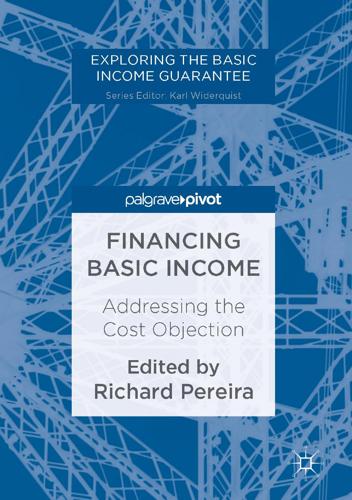
Financing Basic Income: Addressing the Cost Objection
by
Richard Pereira
Published 5 Jul 2017
No new taxation of labour income, or personal income tax increases, are required to achieve this generation of revenue, which can help protect the commons, improve the functioning of the economy and dramatically reduce public health costs. Curbing harmful financial speculation through modest levies has long been discussed for its great revenue generating capacity in contrast to the almost negligible size of such levies (beginning with Tobin tax and many possible variations of it). Ecological, social and speculation (financial, real estate and other) costs are often borne by the victims of these activities, with perpetrators externalizing these costs into the public realm – free-riding. Corporate subsidies (corporate welfare) is yet another version of this phenomenon.
…
This is a summary of what is detailed in this study with a few additional items for consideration marked with an asterisk:Item or programme Missed savings (billions) Missed savings subtotal Additional tax revenue generation (at prevailing rates) $86 RRSP $36.3 $122.3 TFSAs $3 $125.3 Other tax shelters $3 $128.3 Cost of poverty $53 $181.3 Day care – partial redundancy $9 $190.3 Social housing (and related programmes) – partial redundancy $4 $194.3 Additional income assistance/welfare advocated in the cost objection (to status quo programmes) $16 $210.3 WITB (EITC equivalent in the US) Not costed1 Special public employment projects advocated in the cost objection Not costed Homeowner’s Property Tax Grant Not costed Charitable tax deduction programmes and government grants (food banks, poverty alleviation) Not costed Corporate welfare-subsidy programmes Not costed Sunshine list of excessive/high salaries in the public service* Total missed savings/redundancies $210.3 PLUS: tax leakage – current system Offshore tax havens/related evasion and tax avoidance $40 $250.3 PLUS: bureaucracy savings Welfare elimination, social housing reduction, day care reduction, OSAP, etc. Not costed $250.3 PLUS: externalities/current free-riding Social-labour dumping, health costs $22 $272.3 Green dividend/carbon fee $60 $332.3 Tobin tax and/or variations at the national level (financial speculation levies) Not costed Land speculation levy Not costed Taxing unearned income at the same rate as earned income* Total missed savings, tax leakage (in current system) and new revenue from pricing externalities $332.3 1 Estimates can be found in the Parliamentary Budget Office (PBO) – Bureau du Directeur Parlementaire du Budget report of May 27, 2014, “Revenue and Distribution Analysis of Federal Tax Changes: 2005-2013” pp. 18–20 (Fig. 6-2 demonstrates the annual increase in WITB payments to individuals and families since this federal program’s inception in 2007).
…
Index A Alaska Alaska Permanent Fund Dividend, Permanent Fund Corporation B Basic Income (BI) demogrant NIT Universal Basic Income(UBI) Bureaucracy C Canada Revenue Agency (CRA), Offshore Tax Informant Program Care work CERN (Conseil Européen pour la Recherche Nucléaire) Charitable sector philanthropic giving and charity law tax deductions tax shelter schemes Corporate welfare Croll Commission, Report (1971) D DARPA (Defense Advanced Research Projects Agency) Daycare, childcare night daycare overnight care Democratic theory of rent economic rent Demogrant E Earned income See alsoUnearned Economic multiplier effect Economic rent EITC (Earned Income Tax Credit) See alsoWITB [Canada] Electromagnetic Spectrum EU Externalities F Fee and dividend Food banks Forget, Evelyn France Free-riding G GDP Germany GFC (Global Financial Crisis) H Healthcare I Individual Savings Account program (UK) Internal Revenue Service (IRS) International Telecommunication Union (ITU) J Japan K Keynes, Maynard John L Labour (forms of free labour being extracted) Labour income Labour-market Labour standards Land rent Liberal theory of rent, economic rent LICO (Low income cut-off) Liquidity rent Locke, John M Maternity, paternity leave, benefits Mill, John Stuart Mincome Monopoly (rent) Multiple jobholding, multiple job workers Murray, Charles N Negative Income Tax (NIT) Norway O Oil fund P Paine, Thomas Pension(s) AHV – Switzerland Canada Pension Plan (CPP)/Quebec Pension Plan (QPP) Old Age Security (OAS) – Canada Philanthropy Precarious jobs, employment, precarity Pregnancy, pregnant women and job dismissals Public trust resource R Registered Retirement Savings Plan See alsoTax shelters Regressive taxation See alsoTaxes Royalties S Scarcity (rent) Social housing Sovereign Wealth Funds SeeNorway; Alaska; Oil fund Speculation speculative activity T Taxes carbon tax carbon fee carbon levy fee and dividend corporate taxes cuts multinational companies reductions evasion personal income tax regressive tax cuts to corporate rates by implementing basic income neo-liberalism tobin tax, 33(speculation tax[es]) unearned vs. earned income VAT, sales taxes Tax exemptions Tax-Free Savings Accounts(TFSA) See alsoTax shelters Tax havens, offshore tax havens Tax shelters Transfer pricing U Underemployment Underground economy Unearned income ( vs. earned income) Unemployment United Kingdom (UK) United States (US) Universal Basic Income (UBI) See alsoBasic Income Universal dividend Universal public health care (or universal health care) Unjust dismissal, dismissal (pregnant women and employers) Unpaid internships Unpaid overtime Unpaid work, unpaid labour V Van Parijs, Philippe Vermont (and public trust resources) W Whistleblower protection White, Stuart Windfall profits See alsoEconomic rent WITB (Working Income Tax Benefit) See alsoEITC [US] Workplace culture(s) Workplace disability (and costs) Workplace mental health Workplace standards violations See alsoLabour standards Footnotes 1SWI swissinfo.ch, “Vote results: June 5, 2016”, 5 June, 2016. 2SWI swissinfo.ch, “The district that voted in favour of a basic income”, 7 June, 2016. 3BBC News, “Switzerland’s voters reject basic income plan”, 5 June, 2015. 4 Scott Santens, “The Results of the Basic Income Referendum in Switzerland”, medium.com , 5 June, 2016. 5Angus Reid Institute (ARI), “Basic Income?
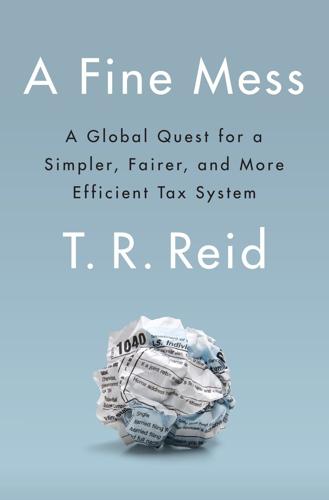
A Fine Mess
by
T. R. Reid
Published 13 Mar 2017
This FAT tax is also widely called the “tiny tax,” which seems unlikely but actually makes sense. The financial trading tax that is about to take effect in the European Union has been dubbed the “Robin Hood tax,” because it takes mainly from the rich. In the academic literature, economists generally refer to a tax on financial transactions as a “Tobin tax,” in honor of the American economist James Tobin, a professor at Yale and a Nobel laureate in economics who began preaching the virtues of this form of taxation in the 1960s. When Bernie Sanders went around the country calling for taxes on financial trading during the 2016 presidential campaign—he said the revenue from this tax would finance his plan for free tuition at all public universities—he referred to his version of the FAT tax as the “Wall Street speculation tax.”
…
Italy, France, Switzerland, South Korea, and Taiwan all tax stock trades. Some countries put a tax on bond purchases and foreign currency exchange. About a dozen countries have bank account taxes; when you deposit money to your account, or withdraw it, the government takes a small portion of it in tax. Another common form of the Tobin tax—in fact, the type that James Tobin himself initially championed—is a tax on foreign currency transactions. In Brazil, for example, when you convert your dollars into reals, or vice versa, there’s often a tax, ranging up to 6%, in addition to whatever fee the bank wants to charge. One key problem with a FAT is that investors can carry out financial transactions almost anywhere today, and so they tend to buy stocks and bonds, or trade currencies, in the countries that don’t tax those trades.
…
With the volume of trading plummeting in Stockholm year after year, the Swedes finally gave up and repealed their tax, in the hope of keeping some of the business at home. In the aftermath of the global Great Recession of 2008–9, there has been renewed interest all over the world in some kind of Tobin tax. Amid the global downturn, governments everywhere had to use general tax revenues to bail out big banks and investment houses; now they want to impose some kind of tax on the financial industry that will pay for the next round of bailouts, if needed. Some economists argue as well that a well-designed tax could reduce volatility in securities markets and thus make financial crises less likely.
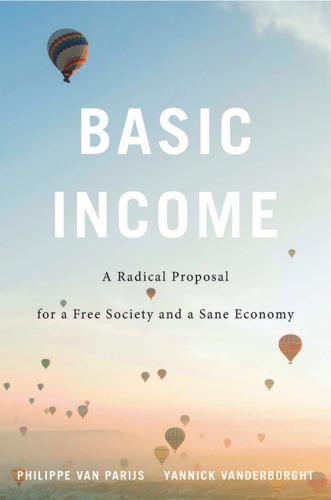
Basic Income: A Radical Proposal for a Free Society and a Sane Economy
by
Philippe van Parijs
and
Yannick Vanderborght
Published 20 Mar 2017
Once the injection of purchasing power—in one go or in a short sequence of payments—Â�has done its job, it should be discontinued.46 Instead of relying on the creation of money, one could also think of funding basic income by taxing the circulation of money. The “Tobin tax” on international financial transactions can be viewed as a relatively modest version of such a tax and has also occasionally been proposed as a source of funding for 153 BASIC INCOME a basic income.47 As conceived by James Tobin, its main aim was not to generate revenues but to reduce the volatility of financial markets by discouraging speculative transactions. Even very low tax rates would generate a sharp contraction of the tax base. Hence, the yield of a Tobin tax is bound to remain modest. Moreover, for obvious reasons, it can only be introduced at an international level.48 However, one could also think of a “super-Â�Tobin tax,” a micro-Â�tax on Â�every single electronic money transfer, even from one’s own current account to one’s savings account.
…
One of them is money creation by the Eu�ro�pean Central Bank. But, as explained in chapter 6, this could not fund a stable level of benefit but only a fluctuating top-up. Another tempting option is the financial transaction tax, also known as the Tobin tax. On the basis of 2012 estimates for the Eu�ro�pean Union, a yield-�maximizing, EU-�wide Tobin tax could, �under fairly optimistic assumptions, fund a basic income of no more than 10 euros per person and per month. Moreover, revenues from such a tax can be expected to fluctuate widely with speculative movements, and such revenues can easily be overestimated, as the tax elasticity of the tax base may increase once speculators find loopholes or shift to more lucrative endeavors.46 What about a carbon tax (as described in chapter 6) or, rather, a fee to be paid for the right to use some of the carbon quotas allocated to the EU?
…
The Association pour la taxation des transactions financières et pour l’action citoyenne (ATTAC), founded in Paris 1998 with the introduction of a Tobin Tax as its main aim, soon started discussing and advocating other ideas. Its German branch, in parÂ�ticÂ�uÂ�lar, became actively involved in the discussion and advocacy of basic income. See, for instance, Rätz et al. 2005. 48. Tobin 1978. In chapter 8, we discuss this option as a source of funding for a eurodividend and mention an estimate of 10 euros per month as the maximum level of basic income that could be funded by a Tobin tax introduced at EU level. 49. The most prominent advocate of this micro-Â�tax, in the Swiss context, was socialist politician Oswald Sigg, former vice-Â�chancellor and former spokesman of the Swiss government.
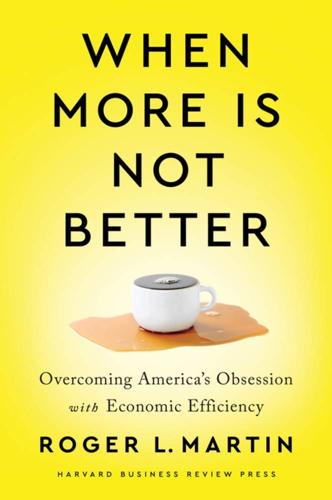
When More Is Not Better: Overcoming America's Obsession With Economic Efficiency
by
Roger L. Martin
Published 28 Sep 2020
See Sarbanes-Oxley Act specialization, 176, 184 Spread Networks, 90 stability, 84 staffing decisions, 124–125 stakeholders, 113–114 standard deviation, 35 standardized tests, 29–30, 45–46, 48–49, 170 standard of living, 9–11, 33 Stanford-Binet IQ test, 33 Sterman, John, 25, 30, 111, 145, 177 stock exchanges, 55–56, 64, 88–93 stock markets, 86, 88–93, 138 circuit-breaker system of, 108 gaming, 89–93 stock prices, 50–52, 88, 108 stock volatility, 51–52, 88 Stottlemyre, Mel, 101 Stottlemyre, Mel, Jr., 101–102 Stottlemyre, Todd, 101–102 stress, financial, 1–3 Superfund, 192, 207 supply costs, 50 surrogation, 47, 50–53, 57, 127–129 survival of the fittest, 129–130 sustainability problem, for monopolies, 130–132 swing voters, 5 Syrian refugee crisis, 196 System Dynamics Group, 177 system dynamics, 176–177 systemic structure, 106–113 Taoism, 183 tariffs, 41–42, 56 tax cuts, 160–161 taxes income, 159–162 progressive, 14, 159–162 Tobin tax, 92, 103 Tax Reform Act (1986), 160 Tayler, Bill, 47 Taylor, Frederick Winslow, 42, 56–57 teachers. See educators teaching See also educators certainty, 170–173, 181, 185 integrative approach to, 174 reductionism, 173–178 technology, 65, 66, 88–89 tenure-based voting rights, 157–159 theorizing, 178–179 Third Congressional District of Maryland, 202, 203 third-party candidates, 201–202 3G Capital, 123–124, 126, 187 tightly coupled systems, 106–107 Tilly, Charles, 192, 194 time-and-motion studies, 42 time horizons, 155–159 Tobin, James, 92 Tobin tax, 92, 103 Tocqueville, Alexis de, 198–199 Ton, Zeynep, 124–126 total quality management, 43 Toyota Production System, 43 Toys “R” Us, 97–98, 99, 101 trade free, 41–42, 56, 63, 66, 150–152 productive friction in, 150–152 trade barriers, 150 trade policy, 56, 150, 151 Trader Joe’s, 125 trade wars, 41 trading technology, 88–91 training, 125 transaction costs, 106 trickle-down economics, 161 Troubled Asset Relief Program (TARP), 138, 144 two-sided markets, 152–153 Uber, 192 unemployment, 24 United States, metaphor for, 26 University of Chicago, 24 US Census Bureau, 4 US Constitution, 40 US economy achieving balance in, 97–114 efficiency in, 63 as efficient machine, 21–44, 94, 100, 210 gaming the system and, 84–94 growth of, 33–38 imbalances in, 1–17 models of, 22–25 as natural system, 77–94 of 1970s, 5–12, 24 proxies in, 45–57 sectors, 22 user-experience (UX) design, 180 value creation, 130 Verizon, 53–54 voter registration, 205–206, 207 voters, 201–206 Voters Not Politicians, 204 wage growth, 9, 10, 68 wages, 67–70, 125, 150 Wagner School, 180 Wallace, George, 201 Wallenstein Feed & Supply (WFS), 133–134 Washington Mutual, 137 Waste Management Inc.
…
Then there was the $6.5 billion spent on the presidential and Congressional elections in 2016, investments in gaining favor with those most central to gaming the Washington game. It is difficult to measure the true size of the stock-market game by the same metric as that of the US budget. But the annual turnover of stocks in US stock markets amounted to $33 trillion in 2018.20 One can quickly see why the industry reacts with terror to any proposal to impose a “Tobin tax” on trading. The idea of such a tax dates back to 1972, when Nobel Laureate James Tobin proposed the imposition of a currency-trading tax in order to limit the economically destabilizing effects of currency volatility. Tobin’s initial suggestion was for a rate of 0.5 percent on the value of the transaction, which, if applied to stock trades, would—on the current trading level—yield almost $200 billion per year in taxes, though the complex adaptive system would surely adjust quickly to find ways around the tax.
…
The US Federal Reserve Board, for example, uses interest rates as its “restrictor plate.” If the Fed feels that the economy is heating up too much and in danger of creating an economic bubble and/or inflation, it can use monetary tightening to push interest rates higher—creating friction intended to slow growth. The previously mentioned Tobin tax on currency trading was explicitly viewed as an imposed friction that would slow down the most dramatic and damaging swings in currency movements. By adding a cost to the execution of each trade, currency traders would be discouraged from trading in an unfettered way that would drive down the currency of a given country.
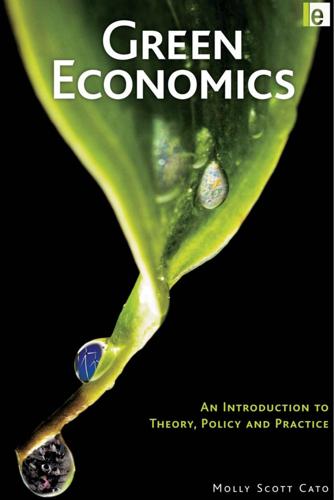
Green Economics: An Introduction to Theory, Policy and Practice
by
Molly Scott Cato
Published 16 Dec 2008
As 154 GREEN ECONOMICS Local investment banks Alternative investment codes Build local capital Banks take shares when lending Emissions trading International floor on commodity prices Delete all Third World debt Site here to sell here Bankruptcy procedure for future national indebtedness ‘Marshall Plan’ for grants, not loans Strategic government Develop social investment entrepreneurship Tobin Tax Government controls on capital flows Revisit Bretton Woods agreement BUILD PROSPERITY GLOBALLY Limit global capital flows Allow capital out only as grants or direct investment Speed bumps Source: Legum 2002 LETS schemes Regenerate local economies Land value taxation Limited national privatization Revisit Keynes’s plan for redressing trade imbalances State-funded free education State-funded free health service Preserve trade barriers to build capacity People-centred growth indicators Local markets Debt-free international resource transfer New government revenue sources: – creation of new money – Total Economic Activity Levy (TEAL) State-funded family support service Build community ownership, e.g. mutualization of services Invest in human infrastructure Protect labour standards Green taxes will localize production for local markets Figure 9.4 Margaret Legum’s design for building prosperity globally made clear in the previous chapter, this will not mean the end of trade, but it will mean that preference is given to local production for goods that can be produced locally.
…
They interpret this as an outcome of a historical relationship of exploitation that began with colonization and has since been continued under the guise of multilateral institutions such as the World Bank and World Trade Organization that are, in reality, dominated by the rich nations.9 Given this analysis, the prescription is that the economic terms of trade between nations should be renegotiated in a democratic manner; this proposal is discussed more fully in Chapter 5 (money) and Chapter 8 (trade). As an interim measure green economists have lent their support to the proposal for a Tobin Tax, first proposed by Nobel-Prize-winning economist James Tobin. This is a percentage tax on speculative financial transactions, imposed at the global level with the revenue invested in projects to improve the lives of those living in poorer nations. Although such an initiative would be supported by most green economists, ‘As a panacea itself it would certainly be a failure since it could not deal with the fundamental systemic problems.’10 Within a green economy taxes would also be used strategically to influence the power and behaviour of businesses.
…
Chapter 10: Green Taxation A green taxation system would be used strategically to achieve three objectives: a fair distribution of resources, efficient use of non-renewable resources and 210 GREEN ECONOMICS the elimination of wasteful economic activity, whether through production or consumption. To achieve equality within nations, greens would support changes to inheritance tax and higher rates of income tax; to begin to redress international inequalities, greens support the introduction of a Tobin Tax on international speculation in currency values. Greens argue for taxes on commons, whose value should be shared between all citizens: the primary example is a Land Value Tax, but another example is a carbon tax on the right to pollute the global atmosphere. Taxes on resources and pollution can be used strategically as resources become more or less in demand and more or less scarce.
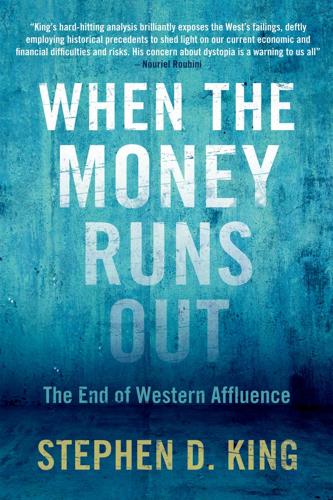
When the Money Runs Out: The End of Western Affluence
by
Stephen D. King
Published 17 Jun 2013
Horsefield (ed.), The International Monetary Fund 1945–1965: Twenty Years of International Monetary Cooperation, vol. 3: Documents (International Monetary Fund, Washington, DC, 1969), at http://www.imsreform.org/reserve/pdf/keynesplan.pdf (accessed Jan. 2013). 3. See, for example, Helmut Reisen, ‘Tobin Tax: Could It Work?’, OECD Observer, 231–2 (May 2002), at http://www.oecdobserver.org/news/archivestory.php/aid/664/Tobin_tax:could_it_work__.html (accessed Jan. 2013). 4. Of course, if the offending country refused to play ball, the political ramifications would be enormous. 5. See C. Tiebout, ‘A Pure Theory of Local Expenditures’, Journal of Political Economy, 64.5 (1956): 416–24. 6.
…
One way to deal with this problem is simply to restrict the scale of cross-border capital flows with the reimposition of capital controls. That, however, would prevent capital from flowing to those parts of the world producing the highest returns, leaving poorer nations particularly vulnerable. Another would be to impose a Tobin tax – in effect, a way of throwing sand into the works of speculative financial bets – on foreign exchange transactions. The likely result would be the creation of offshore foreign exchange hubs and the shift of financial business from London and New York to newly emerging centres in Asia and the Middle East.3 Imbalances would still exist, but they would simply be channelled through centres able to distance themselves from national – or even international – regulation.
…
(i) Smith, Adam (i), (ii) melancholy state (i), (ii), (iii) Snowden's budget (i), (ii) soccer (i) social contract, between generations (i) social insurance (i) social security systems (i) social spending (i) Soros, George (i) South Korea (i), (ii), (iii), (iv), (v) South Sea Bubble (i) space exploration (i), (ii) Spain deficit (i), (ii) and the eurozone (i), (ii) exports (i) fiscal position (i) government borrowing (i) interest rates (i) political disenfranchisement (i) property bubble (i) suicide of Amaia Egana (i) spending government (i), (ii), (iii) public sector (i), (ii), (iii), (iv), (v) social (i) stagnation (i), (ii), (iii), (iv), (v) and political extremism (i) Standard & Poor's (i) ‘stately home’ effect (i) Statute of Labourers (i), (ii) sterling (i), (ii) Stern Review (i) stimulus (i) and jobs (i) monetary and fiscal (i), (ii), (iii) Paul Krugman (i), (ii) policy (i), (ii), (iii) political debate (i) prior to the financial crisis (i) stock markets (i), (ii), (iii) stock-market crashes (i), (ii), (iii), (iv), (v) Straw, Jack (i) structured investment vehicles (SIVs) (i) subprime boom (i), (ii) crisis (i) Suharto (i), (ii) surpluses (i), (ii), (iii), (iv) Sweden (i), (ii) Switzerland (i), (ii) Taiwan (i) Takeshita, Noburo (i) Tanzania (i) tariffs (i) tax avoidance (i), (ii), (iii) taxation ancien régime and the French Revolution (i) death duties (i) medieval poll tax (i) taxpayers (i), (ii), (iii), (iv), (v) technological progress (i), (ii) dotcom bubble (i) and financial industry wages (i) Industrial Revolution (i) Thailand (i), (ii) Thaler, R. H. (i) Thatcher, Margaret (i) The Times (i), (ii) Tobin tax (i) Tocqueville, Alexis de (i) training (i) see also education Treasuries (i), (ii) Treasury View (i) Treaty of Versailles (i) trust (i), (ii), (iii), (iv) and the culture of blame (i) declining between creditors and debtors (i) and the eurozone (i) and the financial industry (i) Tunisia (i) Turgot, Anne-Robert-Jacques (i) Turkey (i) Tyler, Wat (i) UBS AG (i) Uganda (i) UK (United Kingdom) 2008 devaluation (i) age-related expenditure (i) asset ownership (i) austerity (i) deficit (i), (ii) economy (i), (ii), (iii), (iv) equities (i) and the eurozone (i), (ii) exports (i) government borrowing (i) growth forecasts (i) income inequality (i), (ii) inflation targeting (i) interest rates (i), (ii), (iii), (iv) liabilities (i) mortgages (i), (ii) national income (i), (ii), (iii) per capita incomes (i), (ii), (iii), (iv) precious metal standards (i) public spending (i) quantitative easing (QE) (i) social insurance (i) sterling in the 1920s (i) voters (i), (ii), (iii) unemployment (i), (ii), (iii), (iv), (v) US Treasuries (i), (ii) USA (United States of America) benefits (i) budget deficits (i), (ii) Coinage Act, 1873 (i) confidence in banks (i) Congressional Budget Office forecasts (i) debtors to China (i) deficit (i) demographic changes (i) dependent on serial bailouts (i) economy (i), (ii), (iii) education (i) and globalization (i) and the Gold Standard (i) government borrowing (i), (ii) government debt (i) Great Depression (i), (ii) growth forecasts (i) household debt (i) housing markets (i), (ii), (iii) income inequality (i), (ii), (iii), (iv) interest rates (i), (ii), (iii), (iv), (v) lack of trust (i) liabilities (i) life expectancy (i) living standards (i) national income (i), (ii), (iii), (iv) per capita incomes (i), (ii), (iii) public spending (i) Utah (i) Venezuela (i) Volcker, Paul (i) von Mises, Ludwig (i), (ii), (iii) voters (i), (ii), (iii), (iv), (v) Wadlow, Robert (i) wages executive pay (i) in the financial industry (i) warfare (i) Washington Consensus (i), (ii), (iii) Washington Mutual (i) Weber, Max (i), (ii) Weimar Republic (i), (ii) The Who (i) Wilhelm I (i) Wilkinson, Richard (i) Wisconsin (i) Wonga (i) work ethic (i), (ii) Yellen, Janet (i), (ii) Zimbabwe (i), (ii) the ‘zombie’ trap (i)
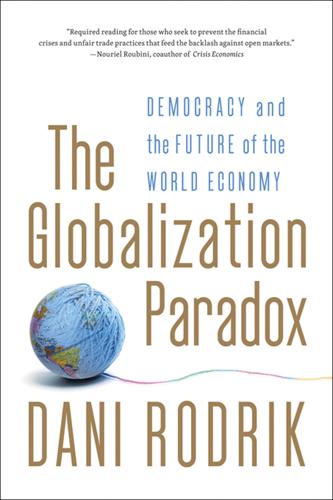
The Globalization Paradox: Democracy and the Future of the World Economy
by
Dani Rodrik
Published 23 Dec 2010
Judging this scenario a political impossibility, he advanced an alternative solution. What we need, he famously argued, was “to throw some sand in the wheels of our excessively efficient international money markets.”26 His specific recommendation was a tax on international currency transactions, a “Tobin tax,” as it has come to be called. Tobin was in a distinct minority, however, and his plea fell on deaf ears against the background of the post–Bretton Woods zeitgeist. Belief in the efficiency and inevitability of global capital mobility remained strong. The world economy would have to suffer more damage before Tobin’s views would receive a sympathetic hearing from leading economists and regulators.27 The waves of financial crises that buffeted countries who left themselves at the mercy of international capital markets produced severe damage indeed.
…
These measures, which go well beyond American proposals and would apply also to any American firm that wants to do business in Europe, unleashed a flurry of U.S. lobbying in support of British efforts to water them down.11 Similarly, the European Parliament approved broad regulations governing credit rating agencies in April 2009, drawing complaints from U.S.-based credit rating agencies about the additional costs the new requirements would impose. The French and Germans, joined this time by the British, have pushed for a global tax on cross-border financial transactions (a variant of the Tobin tax we saw earlier), only to be rebuffed by the American administration. Finally, Europeans have taken a much harder line on bankers’ bonuses than Americans. On other issues, it is the Americans who have led the way while the Europeans have resisted tighter controls. President Barack Obama has endorsed the so-called “Volcker rules,” which would impose ceilings on bank size and prohibit banks trading on their own account.
…
See http://www.forex-brokerage-firms.com/ news/currency-markets-rises.htm. 26 James Tobin, “A Proposal for Monetary Reform,” Eastern Economic Journal, vol. 4, nos. 3–4 (July–October 1978), pp. 153–59. 27 Lord Turner, chairman of the U.K. Financial Services Authority, raised an outcry in August 2009 when he expressed support for a global Tobin tax. This was the first time that a major policy maker from the United States or Britain, the two leading centers of global finance, has come out in favor of the tax. 28 Luc Leaven and Fabian Valencia, “Systemic Bank Crises: A New Database,” International Monetary Fund, Working Paper WP/08/224, September 2008. 29 Guillermo A.
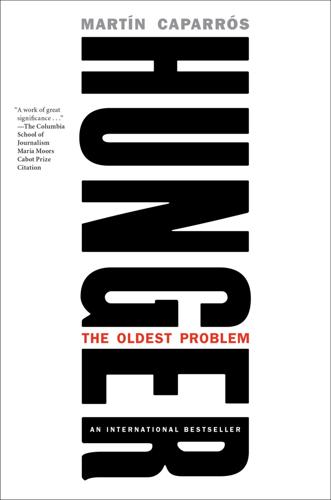
Hunger: The Oldest Problem
by
Martin Caparros
Published 14 Jan 2020
And all analysts predict that, now that the price of food continues to rise, now that the raw materials have returned to a critical place in the world economy, now that the huge agricultural enterprises are the meat of financial speculation, the differences of supplies will also increase: the countries that have food will sell it at higher and higher prices, so those who can pay will have it and others won’t. So, no, it isn’t likely. If it did happen—it never has, but if it does—if we had a world in which nobody was hungry but some have fortunes and others the bare minimum needed for survival, would we be satisfied? There would be ways of achieving this. Let’s take, for example, the Tobin tax. The Tobin Tax is an old invention. In 1971 James Tobin, a Princeton economist, proposed a minimum tax—about 0.1 percent—on financial transactions as a way of putting a brake on speculation that was distorting currency values. At the time, few paid any attention. At the end of the nineties the antiglobalization movement revived the idea and again proposed it as a way of collecting money to help the poorest of the poor.
…
If every buyer contributed a 1 percent tax to that fund, it would add up to $26 billion. Between cars and computers, and without sending anybody into bankruptcy, the $30 billion FAO wanted would be collected and there would even be several thousand extra. To begin with, such proposals are illusory. When they say that the Tobin tax, for example, properly applied and well administered, could end world hunger, they don’t say that the Tobin tax—or any other similar tax—could not be levied because no political power exists that would be capable of doing so. And, even if there was one or more, it would have to be capable of imposing, also, the obligation to use that money to fight hunger.
…
Hunger produces the illusion that shared causes are possible, that we will be unanimous, that we are all in this together, everybody against hunger. Metaphor of an illusion. Everybody deplores hunger, but in the discussion about what to do to fight it, one begins to see the insurmountable differences. Let’s introduce the Tobin Tax on financial transactions; open up more markets; forbid speculation on food; send experts to explain how to plant a particular seed; collect bags of food; take power; keep ourselves in power; send bags of food. Then we could say that hunger is the ultimate metaphor for poverty: its most indisputable expression.
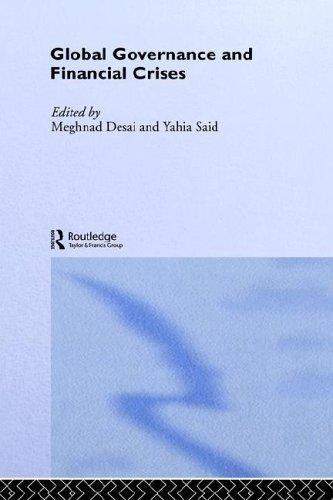
Global Governance and Financial Crises
by
Meghnad Desai
and
Yahia Said
Published 12 Nov 2003
This was originally meant to last for only a three-month period, but was later extended to twelve months.37 There was an alternative to this deposit (also used in Colombia), which was to pay the Central Bank a sum equivalent to the opportunity cost of the deposit – this made it into a ‘Tobin-type’ tax, as it was equivalent to a fixed cost for certain types of external borrowing. By Tobin tax standards, however, this tax was very high (about 3 per cent for one-year inflows during booms in the capital market),38 and tended to fluctuate in response to changes in certain macroeconomic factors, such as international interest rates.39 This tax was aimed at having a counter-cyclical role, which is why it was raised during periods of rapid expansion, and lowered (even to a zero rate in both countries) when necessary (for example in the aftermath of recent financial crises).40 Furthermore, controls on capital inflows have not been limited to reserve requirements; for example, until very recently all inflows (including direct investment and portfolio flows) were subject to a one-year minimum stay requirement.
…
So, the basic evidence on the effect of controls in Chile in terms of volume of inflows seems to tend towards significant but short-term effects. Of course, this phenomenon is not independent from the level that these price controls actually reached (which, as mentioned earlier, although high for a standard Tobin-tax level, were lower than those of Colombia, and, in practice, much milder than Malaysia’s controls in 1994); unfortunately, there is no sufficient data from which to construct a proper measurement for the relevant elasticity. 142 Gabriel Palma 5.0 US$ (1999) billions 5.0 2.5 2.5 0 0 Capital controls imposed Capital controls strengthened –2.5 –2.5 1988 1989 1990 1991 1992 1993 1994 1995 1996 1997 Figure 7.18 Chile: net equity securities and other investment (IMF), 1988–97.
…
-S. 95 Smithsonian Institute agreement 44, 46 Index 161 South Korea 49, 97, 101–2, 117, 119, 137–9 sovereignty: monetary 58–9, 63–6; national 73–4 special drawing rights (SDRs) 46, 50–3 speculation in risky assets 37–40 Sprague, O. 35 stagflation 2, 13, 15 Stiglitz, J.E. 92, 152 stop-go policies 48 stress tests 62 structural adjustment policies 13–14, 48–9, 54 Summers, L.H. and V.P. 120 supplemental reserve facility 57 surveillance 47, 56, 59–65 Sweden 20 TARGET 52 Taylor, L. 15–16 technology stocks 25 Tequila effect 120, 143 terms of trade 55 Thailand 84–5, 101, 110–11, 114, 117, 130, 133, 139 Tobin tax 140–1 Triffin, R. 46, 53 uncertainty, financial 28 United Kingdom 52 United States 13, 29, 31, 35, 48; Congress 64–5; Treasury 43, 56, 66; see also Federal Reserve Wallerstein, I. 77 Wall Street Crash 12 Walras, L. 8–10 Washington Consensus 49, 56, 72, 125 White, Harry 44 World Bank 43, 55, 77, 80, 100, 104 World.com 6 World Economic Outlook 62 World Trade Organisation 77, 80, 100 worst-case scenarios 62
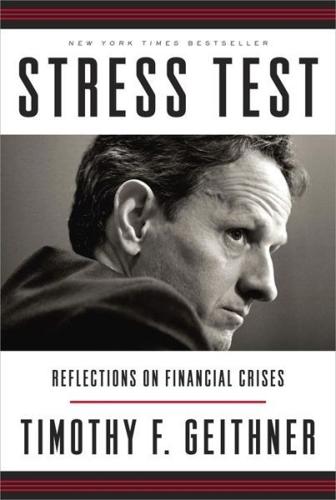
Stress Test: Reflections on Financial Crises
by
Timothy F. Geithner
Published 11 May 2014
Later that month, Brown and I met privately before a G-20 summit in St. Andrews, Scotland, and he again pitched the Tobin tax. I told him we couldn’t back it, but we were open to other ways of recovering the costs of financial rescues. I said we were already considering a tax on bank leverage, which we thought would be much more effective in discouraging risky behavior as well as raising revenues to make taxpayers whole. I tried to make it clear I wanted to help him avoid a public conflict with the United States, but he wanted a Tobin tax. Later that day, I sat for an interview with Sky News, the British version of Fox News—also owned by Rupert Murdoch, consistently hostile to Brown and Labour.
…
They asked if I would support Brown’s financial transaction tax, and although I expressed support for his broader objective of getting the financial industry to pay for its rescues, I said we wouldn’t back a Tobin tax. This set off a press frenzy; Brown’s top adviser told Axelrod that I had delivered “quite a hard slapdown.” Brown called me to complain that I had embarrassed him on right-wing TV, but I had warned him where I stood. He said he really needed me to support him. I again said I couldn’t do that. Brown’s people pressured the White House to walk back my public statement, and my team in Washington asked me if I wanted to clarify it. “Clarify what?” I asked. There was no realistic prospect of a global Tobin tax. It certainly had no chance without our support, so we became a convenient villain.
…
Amid all this global progress and cooperation, our occasional disputes got much more attention, especially my minor spat with British prime minister Gordon Brown, a Scottish Labour Party politician whom I had first met when he was the United Kingdom’s finance minister and I was a midlevel Treasury official. In November 2009, mired in a tough campaign for reelection, Brown had his political advisers reach out to David Axelrod to try to get the administration to support a global tax on financial transactions. The so-called Tobin tax was a perennial populist favorite, conceived as a way to reap revenues from financial interests and discourage financial speculation. It had been tried in many countries, and the United States even had a very small tax on equity transactions to help fund the SEC. But Brown’s proposal would have been easily evaded by sophisticated investors, would hurt mostly retail investors, wouldn’t raise much revenue, and would have no effect on speculation.
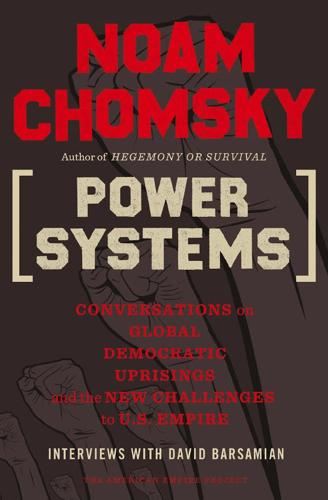
Power Systems: Conversations on Global Democratic Uprisings and the New Challenges to U.S. Empire
by
Noam Chomsky
and
David Barsamian
Published 1 Nov 2012
I think the criticism that Occupy hasn’t come up with actual proposals or demands is just not true. There are lots of proposals that have come out of Occupy. Many of them are quite feasible, within reach. In fact, some even have mainstream support from places like the Financial Times, things like a financial transaction tax, which makes good sense. That’s the former Tobin tax, put forward by the economist and Nobel laureate James Tobin, sometimes called the Robin Hood tax. Yes. A financial transaction tax would make a big difference in some countries, if it were done properly. The absolute refusal to tax the superrich is another part of the Republican catechism. Going after that—and dealing with radical inequality—makes perfectly good sense.
…
Humanitarian Law Project, 70–71 Syria, 63, 95, 106 Taft-Hartley bill, 40 Taiwan, 9, 21, 169 Taliban, 15–16, 98, 100 taxes, 38, 75–76, 82, 159 cuts, 41–42 Tobin, 76 Tea Party movement, 28 technology, 9, 145–46 television, 67, 102 terrorism, 14, 21, 96, 109, 114, 139 against Kurds, 89–92 military detention and, 70–73 9/11 attacks, 14–16, 139 theory of mind, 132 Tobin, James, 76 Tobin tax, 76 torture, 37, 89, 92, 109, 145 totalitarianism, 64, 79, 158 trade, 9, 87–88 deficit, 9 Trans-Afghanistan Pipeline (TAPI), 17–18 Trilateral Commission report, 150, 151 Truman, Harry S., 24 Tunisia, 44–45, 48–49, 53, 67, 112–13 Turkey, 51, 89–94 human rights violations, 89–92 -Israel relations, 92–94 Kurds, 89–92 Turkmenistan, 17 Twitter, 105, 145 UNASUR, 161 unemployment, 22–23, 38, 66, 76 United Arab Emirates, 8, 15, 49 United Auto Workers, 25 United Nations, 46, 50–52, 115, 162, 163 universal genome, 129 universal grammar, 126–29 universities, 150–53, 165–68 corporatization of, 152, 167–68 sports, 165–66 uprisings, 44–64 Arab Spring, 44–55, 60–64, 67, 112–13, 168 Egypt, 44–49, 60–64 Libya, 50–54 Vietnam War, 1–3, 15, 31, 64, 97 visual system, 141 voting, 81, 84, 117–18 Wallerstein, Immanuel, 77 Wall Street Journal, 54, 169 Walmart, 9 war, 13–18, 20 crimes, 114–17 Warfalla, 50 Washington, George, 3 Weathermen, 74 Weimar Republic, 25, 27–29 Weisskopf, Victor, 149, 154 welfare, 82–83, 84, 87 Western Sahara, 46 “When Elites Fail” (Chomsky), 22 Wiesel, Elie, 94 WikiLeaks, 99, 107–13 Wilson, Woodrow, 13, 23 Wisconsin, labor demonstrations in, 40–43 Wolf, Martin, 78 Wolff, Richard, 88 women’s rights, 79, 150, 177 World Bank, 47 World Trade Organization, 107 World War II, 5, 7, 56, 57, 115–16 Yemen, 49, 114 Yglesias, Matthew, 59, 63 YouTube, 104 Zaire, 17 Zinn, Howard, 1, 22, 78 About the Authors NOAM CHOMSKY is the author of numerous best-selling political works, including Hegemony or Survival and Failed States.
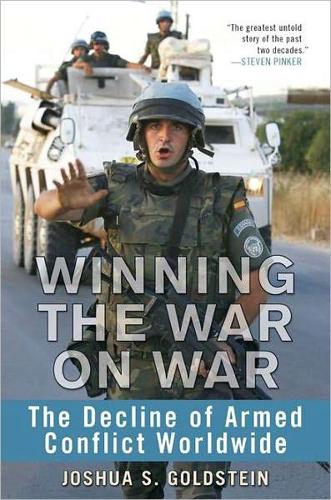
Winning the War on War: The Decline of Armed Conflict Worldwide
by
Joshua S. Goldstein
Published 15 Sep 2011
Proposals have included funding the UN, economic development in poor countries, global warming measures, or the creation of a kind of insurance fund against financial collapses. Britain, France, and Canada have all, at some point, supported some variation of such a tax. The Tobin tax could raise hundreds of billions of dollars a year, far more than would be needed to supercharge the current few billions devoted to peace operations. But its economic effects are uncertain and it seems politically impractical. In 2001 it received the kiss-of-death endorsement of Fidel Castro. I would not want higher peacekeeping budgets to have to wait for grand schemes such as the Tobin tax to be agreed and implemented. AN INSTITUTION WORTH INVESTING IN It is not just the peacekeeping department that is worthy of dramatically increased support.
…
During the Angola war, in 1998, a UN plane was shot down with all killed, including the Special Representative of the Secretary-General. The son of the pilot took another UN flight to search for the wreckage, and that plane, too, was shot down with all killed—twenty-three people altogether. Ideas for radically changing the UN’s funding levels and mechanisms have foundered. The “Tobin tax,” proposed by the late Nobel Prize–winning economist James Tobin, would raise substantial funds to support the UN. It would apply a very small tax to international foreign exchange transactions, which constitute a very high volume of financial flows, trillions of dollars a day. Debate continues about how to implement such an idea, originally conceived as a way to dampen volatility and speculation in currency markets, as well as who would administer it and how the proceeds would be used.
…
Chapter 12 308 The second largest: Erlanger 2009. 310 Surprisingly resilient: Shawcross 2000: 299; Kennedy 2006: 110 ; Bellamy, Williams, and Griffin 2004: 8. 311 In assessing the UN’s: Pérez de Cuéllar 1997: 16–17, 36–37. 311 Pushed to the wall: MacFarquhar 2009a; see Banerjee 2008: 187. 311 Flag is not enough: MacFarquhar 2008. 311 Plane was shot down: Shawcross 2000: 403, 38. 312 Tobin tax: Diehl 2008: 113; Castro 2001. 312 Australian: Evans 2008: 176. 312–13 Permanent missions: Prantl 2006: 75; Data from globalpolicy.org/security/data/tabsec.htm. 313 Plane of his own: Traub 2006a: 221. 313 No enforcement. . . . race against time: Shawcross 2000: 34, 45. 313 Power and prestige: O’Brien 1962: 64. 313 Pretension and grandiosity: Babbin 2004: 196. 313 In late 1954: Traub 2006a: 11. 314 Test of the authority: Urquhart 1993: 336. 314 Considerable freedom: O’Brien 1962: 269. 314 Sensible notion: Weiss 2009: 180. 314 U.S. public opinion: Worldpublicopinion.org 2007: 9–10, 5. 316 Military policy expert: O’Hanlon 2007: 323, 321, 328, 319–28. 316 RAND: Dobbins et al. 2007: 4–5, 258, 6, 256. 316 Once war starts: Doyle and Sambanis 2006: 43. 317 Ounce of prevention: Urquhart 1972: 524; Annan 2002: 2, 11 ; Stares and Zenko, 2009. 317 $200 billion: Cited in Annan 2002: 1–2. 317 Early-warning: Carnegie Commission 1997: 43–48; see also Edwards 1999: 109. 317 As Annan notes: Annan 2002: 1, 19, 35, 27. 317 Annan complains: Annan 2002: 45; see Melander, Möller, and Öberg 2009. 317–18 OSCE: Ramsbotham, Woodhouse, and Miall 2005: 127–29, 110–12. 318 Cost $11 billion: Zartman 2005: 203, 204. 318 Medical researcher: Hamburg 2002: x; Stanford Prevention Research Center n.d. 318 Hamburg went on: Carnegie Commission on Preventing Deadly Conflict 1997; Hamburg 2008; Hamburg 2002: 308. 319 State Department poll: Ruggie 1996: 33. 319 Who do you think: Traub 2006a: 8, 16. 319 During the Reagan: Pérez de Cuéllar 1997: 9, 10, 12. 319–20 After 1994: Ruggie 1996: 7. 320 Jesse Helms: Traub 2006a: 131–35; see also Shawcross 2000: 33. 320 Richard Holbrooke: Traub 2006a: 136–38, 143. 320 Tone shifted again: Traub 2006a: 153; see Bolton 1994; Weiss 2009: 2; Doyle and Sambanis 2006: 2. 320 Obama Administration: MacFarquhar 2009b; UNA-USA 2010. 321 State-centric: Weiss 2009: 2, 19. 321 192 units: Garrett 1999: 30. 322 Personal setting: See Long and Brecke 2003. 322 Limits to sovereignty: Holsti 1996: 191. 323 World’s business: Evans 2008: 5, 11, 175. 323 Breakaway Georgian: Malcomson 2008: 13. 323 Security Council, however: Bellamy, Williams, and Griffin 2004: 3; see also Garrett 1999: 67. 323 UN Charter says: See Donnelly 2003: 243. 324 Humanitarian intervention: Thakur 2007: 399; Mingst and Karns 2007: 109–10; Garrett 1999: 4, viii; see also Zartman 2005: 1. 324 Came to a head in Kosovo: Donnelly 2003: 258, 259. 324–25 Long predates: Garrett 1999: 9; Bass 2008: 3–8. 325 Profoundly national. . . . 1990s: Wheeler 2000: 1, 8; see also Donnelly 2003: 179, 242 ; Seybolt 2007: 270. 325 Annan supported the concept: Quoted in Traub 2006a: 100. 325 Potential weakening. . . . driven more: Wheeler 2000: 285, 300. 325 G77: Traub 2006a: 101; see Marten 2004. 325 Set up the commission: International Commission on Intervention and State Sovereignty 2001. 325–26 In 2008: Albright 2008. 326 Despite the resilience: Kennedy 2006: 77; O’Brien 1962: 3; Pérez de Cuéllar 1997: 3. 326 Trick-or-treat: Rubinstein 2008: 1–2. 326 Symbolic. . . . moribund: Rubinstein 2008: 3. 327 International Day: UN 2008.
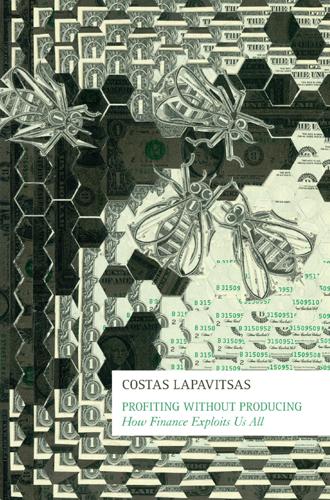
Profiting Without Producing: How Finance Exploits Us All
by
Costas Lapavitsas
Published 14 Aug 2013
An important regulatory step in confronting financialization, therefore, could be to impose a tax on financial transactions, widely known as a ‘Tobin tax’.42 Tobin taxes were originally conceived as currency transactions taxes. However, they could be considered more broadly as taxes on financial transactions in general with the aim of dissuading short-term speculative flows of loanable capital hoping to make financial profit. The ‘churning’ of loanable capital in financial markets could be reduced as could the ceaseless invention of new ways to transact in loanable capital by banks and other financial institutions. Effective Tobin taxes would probably require international coordination among states, though there is scope in practice for introduction at a national or regional level.
…
Effective Tobin taxes would probably require international coordination among states, though there is scope in practice for introduction at a national or regional level. If public property and control were widely re-established in the sphere of finance, the introduction of Tobin taxes would probably become easier. Public banks operating in a spirit of public service would more easily refrain from regulatory arbitrage and would more naturally accept restricted trading in open financial markets. A weightier presence for public banks in the financial system, moreover, would reduce the ability of private banks to influence the policymaking environment. In short, regulatory change would benefit from changes in the property relations within the financial system.
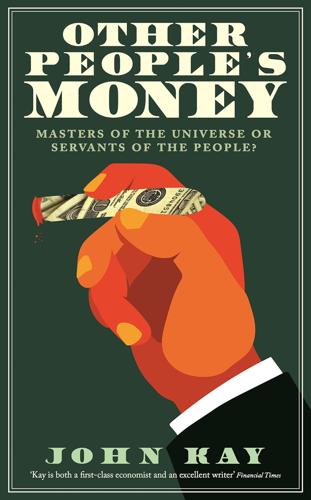
Other People's Money: Masters of the Universe or Servants of the People?
by
John Kay
Published 2 Sep 2015
Levied at a low rate, such a tax would have little impact on the profitability of long-term investments but would kill the attractions of high-frequency trading, which depends on blisteringly fast arbitrage and microscopic price variations. This idea is often called the ‘Tobin tax’, after James Tobin, the American economist who proposed it in 1972,1 and has received wide support in the European Union. If a Tobin tax could be administered on a basis that was universal in its geographical scope and applied in non-discriminatory fashion to all forms of financial instrument, it would have considerable attractions. But if, as seems inevitable, there are some financial jurisdictions that do not impose the tax – and there is at present no possibility that even the USA would do so – and if, as also seems inevitable, there is no practical way of imposing the tax on a non-discriminatory basis between derivative transactions or other complex instruments and transactions in the underlying securities, the tax is likely to have more undesirable side-effects than benefits.
…
.: Hyperion 220 Loomis, Carol 108 lotteries 65, 66, 68, 72 Lucas, Robert 40 Lynch, Dennios 108 Lynch, Peter 108, 109 M M-Pesa 186 Maastricht Treaty (1993) 243, 250 McCardie, Sir Henry 83, 84, 282, 284 McGowan, Harry 45 Machiavelli, Niccolò 224 McKinley, William 44 McKinsey 115, 126 Macy’s department store 46 Madoff, Bernard 29, 118, 131, 132, 177, 232, 293 Madoff Securities 177 Magnus, King of Sweden 196 Manhattan Island, New York: and Native American sellers 59, 63 Manne, Henry 46 manufacturing companies, rise of 45 Marconi 48 marine insurance 62, 63 mark-to-market accounting 126, 128–9, 320n22 mark-to-model approach 128–9, 320n21 Market Abuse Directive (MAD) 226 market economy 4, 281, 302, 308 ‘market for corporate control, the’ 46 market risk 97, 98, 177, 192 market-makers 25, 28, 30, 31 market-making 49, 109, 118, 136 Markets in Financial Instruments Directive (MIFID) 226 Markkula, Mike 162, 166, 167 Markopolos, Harry 232 Markowitz, Harry 69 Markowitz model of portfolio allocation 68–9 Martin, Felix 323n5 martingale 130, 131, 136, 139, 190 Marx, Groucho 252 Marx, Karl 144, 145 Capital 143 Mary Poppins (film) 11, 12 MasterCard 186 Masters, Brooke 120 maturity transformation 88, 92 Maxwell, Robert 197, 201 Mayan civilisation 277 Meade, James 263 Means, Gardiner 51 Meeker, Mary 40, 167 Melamed, Leo 19 Mercedes 170 merchant banks 25, 30, 33 Meriwether, John 110, 134 Merkel, Angela 231 Merrill Lynch 135, 199, 293, 300 Merton, Robert 110 Metronet 159 Meyer, André 205 MGM 33 Microsoft 29, 167 middleman, role of the 80–87 agency and trading 82–3 analysts 86 bad intermediaries 81–2 from agency to trading 84–5 identifying goods and services required 80, 81 logistics 80, 81 services from financial intermediaries 80–81 supply chain 80, 81 transparency 84 ‘wisdom of crowds’ 86–7 Midland Bank 24 Milken, Michael 46, 292 ‘millennium bug’ 40 Miller, Bill 108, 109 Minuit, Peter 59, 63 Mises, Ludwig von 225 Mittelstand (medium-size business sector) 52, 168, 169, 170, 171, 172 mobile banking apps 181 mobile phone payment transfers 186–7 Modigliani-Miller theorem 318n9 monetarism 241 monetary economics 5 monetary policy 241, 243, 245, 246 money creation 88 money market fund 120–21 Moneyball phenomenon 165 monopolies 45 Monte Carlo casino 123 Monte dei Paschi Bank of Siena 24 Montgomery Securities 167 Moody’s rating agency 21, 248, 249, 313n6 moral hazard 74, 75, 76, 92, 95, 256, 258 Morgan, J.P. 44, 166, 291 Morgan Stanley 25, 40, 130, 135, 167, 268 Morgenthau, District Attorney Robert 232–3 mortality tables 256 mortgage banks 27 mortgage market fluctuation in mortgage costs 148 mechanised assessment 84–5 mortgage-backed securities 20, 21, 40, 85, 90, 100, 128, 130, 150, 151, 152, 168, 176–7, 284 synthetic 152 Mozilo, Angelo 150, 152, 154, 293 MSCI World Bank Index 135 muckraking 44, 54–5, 79 ‘mugus’ 118, 260 multinational companies, and diversification 96–7 Munger, Charlie 127 Munich, Germany 62 Munich Re 62 Musk, Elon 168 mutual funds 27, 108, 202, 206 mutual societies 30 mutualisation 79 mutuality 124, 213 ‘My Way’ (song) 72 N Napoleon Bonaparte 26 Napster 185 NASA 276 NASDAQ 29, 108, 161 National Economic Council (US) 5, 58 National Employment Savings Trust (NEST) 255 National Institutes of Health 167 National Insurance Fund (UK) 254 National Provincial Bank 24 National Science Foundation 167 National Westminster Bank 24, 34 Nationwide 151 Native Americans 59, 63 Nazis 219, 221 neo-liberal economic policies 39, 301 Netjets 107 Netscape 40 Neue Markt 170 New Deal 225 ‘new economy’ bubble (1999) 23, 34, 40, 42, 98, 132, 167, 199, 232, 280 new issue market 112–13 New Orleans, Louisiana: Hurricane Katrina disaster (2005) 79 New Testament 76 New York Stock Exchange 26–7, 28, 29, 31, 49, 292 New York Times 283 News of the World 292, 295 Newton, Isaac 35, 132, 313n18 Niederhoffer, Victor 109 NINJAs (no income, no job, no assets) 222 Nixon, Richard 36 ‘no arbitrage’ condition 69 non-price competition 112, 219 Norman, Montagu 253 Northern Rock 89, 90–91, 92, 150, 152 Norwegian sovereign wealth fund 161, 253 Nostradamus 274 O Obama, Barack 5, 58, 77, 194, 271, 301 ‘Obamacare’ 77 Occidental Petroleum 63 Occupy movement 52, 54, 312n2 ‘Occupy Wall Street’ slogan 305 off-balance-sheet financing 153, 158, 160, 210, 250 Office of Thrift Supervision 152–3 oil shock (1973–4) 14, 36–7, 89 Old Testament 75–6 oligarchy 269, 302–3, 305 oligopoly 118, 188 Olney, Richard 233, 237, 270 open market operations 244 options 19, 22 Organisation for Economic Co-operation and Development (OECD) 263 Osborne, George 328n19 ‘out of the money option’ 102, 103 Overend, Gurney & Co. 31 overseas assets and liabilities 179–80, 179 owner-managed businesses 30 ox parable xi-xii Oxford University 12 P Pacific Gas and Electric 246 Pan Am 238 Paris financial centre 26 Parliamentary Commission on Banking Standards 295 partnerships 30, 49, 50, 234 limited liability 313n14 Partnoy, Frank 268 passive funds 99, 212 passive management 207, 209, 212 Patek Philippe 195, 196 Paulson, Hank 300 Paulson, John 64, 109, 115, 152, 191, 284 ‘payment in kind’ securities 131 payment protection policies 198 payments system 6, 7, 25, 180, 181–8, 247, 259–60, 281, 297, 306 PayPal 167, 168, 187 Pecora, Ferdinand 25 Pecora hearings (1932–34) 218 peer-to-peer lending 81 pension funds 29, 98, 175, 177, 197, 199, 200, 201, 208, 213, 254, 282, 284 pension provision 78, 253–6 pension rights 53, 178 Perkins, Charles 233 perpetual inventory method 321n4 Perrow, Charles 278, 279 personal financial management 6, 7 personal liability 296 ‘petrodollars’ 14, 37 Pfizer 96 Pierpoint Morgan, J. 165 Piper Alpha oil rig disaster (1987) 63 Ponzi, Charles 131, 132 Ponzi schemes 131, 132, 136, 201 pooled investment funds 197 portfolio insurance 38 Potts, Robin, QC 61, 63, 72, 119, 193 PPI, mis-selling of 296 Prebble, Lucy: ENRON 126 price competition 112, 219 price discovery 226 price mechanism 92 Prince, Chuck 34 private equity 27, 98, 166, 210 managers 210, 289 private insurance 76, 77 private sector 78 privatisation 39, 78, 157, 158, 258, 307 probabilistic thinking 67, 71, 79 Procter & Gamble 69, 108 product innovation 13 property and infrastructure 154–60 protectionism 13 Prudential 200 public companies, conversion to 18, 31–2, 49 public debt 252 public sector 78 Q Quandt, Herbert 170 Quandt Foundation 170 quantitative easing 245, 251 quantitative style 110–11 quants 22, 107, 110 Quattrone, Frank 167, 292–3 queuing 92 Quinn, Sean 156 R railroad regulation 237 railway mania (1840s) 35 Raines, Franklin 152 Rajan, Raghuram 56, 58, 79, 102 Rakoff, Judge Jed 233, 294, 295 Ramsey, Frank 67, 68 Rand, Ayn 79, 240 ‘random walk’ 69 Ranieri, Lew 20, 22, 106–7, 134, 152 rating agencies 21, 41, 84–5, 97, 151, 152, 153, 159, 249–50 rationality 66–7, 68 RBS see Royal Bank of Scotland re-insurance 62–3 Reagan, Ronald 18, 23, 54, 59, 240 real economy 7, 18, 57, 143, 172, 190, 213, 226, 239, 271, 280, 288, 292, 298 redundancy 73, 279 Reed, John 33–4, 48, 49, 50, 51, 242, 293, 314n40 reform 270–96 other people’s money 282–5 personal responsibility 292–6 principles of 270–75 the reform of structure 285–92 robust systems and complex structures 276–81 regulation 215, 217–39 the Basel agreements 220–25 and competition 113 the origins of financial regulation 217–19 ‘principle-based’ 224 the regulation industry 229–33 ‘rule-based’ 224 securities regulation 225–9 what went wrong 233–9 ‘Regulation Q’ (US) 13, 14, 20, 28, 120, 121 regulatory agencies 229, 230, 231, 235, 238, 274, 295, 305 regulatory arbitrage 119–24, 164, 223, 250 regulatory capture 237, 248, 262 Reich, Robert 265, 266 Reinhart, C.M. 251 relationship breakdown 74, 79 Rembrandts, genuine/fake 103, 127 Renaissance Technologies 110, 111, 191 ‘repo 105’ arbitrage 122 repo agreement 121–2 repo market 121 Reserve Bank of India 58 Reserve Primary Fund 121 Resolution Trust Corporation 150 retirement pension 78 return on equity (RoE) 136–7, 191 Revelstoke, first Lord 31 risk 6, 7, 55, 56–79 adverse selection and moral hazard 72–9 analysis by ‘ketchup economists’ 64 chasing the dream 65–72 Geithner on 57–8 investment 256 Jackson Hole symposium 56–7 Kohn on 56 laying bets on the interpretation of incomplete information 61 and Lloyd’s 62–3 the LMX spiral 62–3, 64 longevity 256 market 97, 98 mitigation 297 randomness 76 socialisation of individual risks 61 specific 97–8 risk management 67–8, 72, 79, 137, 191, 229, 233, 234, 256 risk premium 208 risk thermostat 74–5 risk weighting 222, 224 risk-pooling 258 RJR Nabisco 46, 204 ‘robber barons’ 44, 45, 51–2 Robertson, Julian 98, 109, 132 Robertson Stephens 167 Rockefeller, John D. 44, 52, 196 Rocket Internet 170 Rogers, Richard 62 Rogoff, K.S. 251 rogue traders 130, 300 Rohatyn, Felix 205 Rolls-Royce 90 Roman empire 277, 278 Rome, Treaty of (1964) 170 Rooney, Wayne 268 Roosevelt, Franklin D. v, 25, 235 Roosevelt, Theodore 43–4, 235, 323n1 Rothschild family 217 Royal Bank of Scotland 11, 12, 14, 24, 26, 34, 78, 91, 103, 124, 129, 135, 138, 139, 211, 231, 293 Rubin, Robert 57 In an Uncertain World 67 Ruskin, John 60, 63 Unto this Last 56 Russia defaults on debts 39 oligarchies 303 Russian Revolution (1917) 3 S Saes 168 St Paul’s Churchyard, City of London 305 Salomon Bros. 20, 22, 27, 34, 110, 133–4 ‘Salomon North’ 110 Salz Review: An Independent Review of Barclays’ Business Practices 217 Samuelson, Paul 208 Samwer, Oliver 170 Sarkozy, Nicolas 248, 249 Savage, L.J. 67 Scholes, Myron 19, 69, 110 Schrödinger’s cat 129 Scottish Parliament 158 Scottish Widows 26, 27, 30 Scottish Widows Fund 26, 197, 201, 212, 256 search 195, 209, 213 defined 144 and the investment bank 197 Second World War 36, 221 secondary markets 85, 170, 210 Securities and Exchange Commission (SEC) 20, 64, 126, 152, 197, 225, 226, 228, 230, 232, 247, 292, 293, 294, 313n6 securities regulation 225–9 securitisation 20–21, 54, 100, 151, 153, 164, 169, 171, 222–3 securitisation boom (1980s) 200 securitised loans 98 See’s Candies 107 Segarra, Carmen 232 self-financing companies 45, 179, 195–6 sell-side analysts 199 Sequoia Capital 166 Shad, John S.R. 225, 228–9 shareholder value 4, 45, 46, 50, 211 Sharpe, William 69, 70 Shell 96 Sherman Act (1891) 44 Shiller, Robert 85 Siemens 196 Siemens, Werner von 196 Silicon Valley, California 166, 167, 168, 171, 172 Simon, Hermann 168 Simons, Jim 23, 27, 110, 111–12, 124 Sinatra, Frank 72 Sinclair, Upton 54, 79, 104, 132–3 The Jungle 44 Sing Sing maximum-security gaol, New York 292 Skilling, Jeff 126, 127, 128, 149, 197, 259 Slim, Carlos 52 Sloan, Alfred 45, 49 Sloan Foundation 49 small and medium-size enterprises (SMEs), financing 165–72, 291 Smith, Adam 31, 51, 60 The Wealth of Nations v, 56, 106 Smith, Greg 283 Smith Barney 34 social security 52, 79, 255 Social Security Trust Fund (US) 254, 255 socialism 4, 225, 301 Société Générale 130 ‘soft commission’ 29 ‘soft’ commodities 17 Soros, George 23, 27, 98, 109, 111–12, 124, 132 South Sea Bubble (18th century) 35, 132, 292 sovereign wealth funds 161, 253 Soviet empire 36 Soviet Union 225 collapse of 23 lack of confidence in supplies 89–90 Spain: property bubble 42 Sparks, D.L. 114, 283, 284 specific risk 97–8 speculation 93 Spitzer, Eliot 232, 292 spread 28, 94 Spread Networks 2 Square 187 Stamp Duty 274 Standard & Poor’s rating agency 21, 99, 248, 249, 313n6 Standard Life 26, 27, 30 standard of living 77 Standard Oil 44, 196, 323n1 Standard Oil of New Jersey (later Exxon) 323n1 Stanford University 167 Stanhope 158 State Street 200, 207 sterling devaluation (1967) 18 stewardship 144, 163, 195–203, 203, 208, 209, 210, 211, 213 Stewart, Jimmy 12 Stigler, George 237 stock exchanges 17 see also individual stock exchanges stock markets change in organisation of 28 as a means of taking money out of companies 162 rise of 38 stock-picking 108 stockbrokers 16, 25, 30, 197, 198 Stoll, Clifford 227–8 stone fei (in Micronesia) 323n5 Stone, Richard 263 Stora Enso 196 strict liability 295–6 Strine, Chancellor Leo 117 structured investment vehicles (SIVs) 158, 223 sub-prime lending 34–5, 75 sub-prime mortgages 63, 75, 109, 149, 150, 169, 244 Summers, Larry 22, 55, 73, 119, 154, 299 criticism of Rajan’s views 57 ‘ketchup economics’ 5, 57, 69 support for financialisation 57 on transformation of investment banking 15 Sunday Times 143 ‘Rich List’ 156 supermarkets: financial services 27 supply chain 80, 81, 83, 89, 92 Surowiecki, James: The Wisdom of Crowds xi swap markets 21 SWIFT clearing system 184 Swiss Re 62 syndication 62 Syriza 306 T Taibbi, Matt 55 tailgating 102, 103, 104, 128, 129, 130, 136, 138, 140, 152, 155, 190–91, 200 Tainter, Joseph 277 Taleb, Nassim Nicholas 125, 183 Fooled by Randomness 133 Tarbell, Ida 44, 54 TARGET2 system 184, 244 TARP programme 138 tax havens 123 Taylor, Martin 185 Taylor Bean and Whitaker 293 Tea Party 306 technological innovation 13, 185, 187 Tel Aviv, Israel 171 telecommunications network 181, 182 Tesla Motors 168 Tetra 168 TfL 159 Thai exchange rate, collapse of (1997) 39 Thain, John 300 Thatcher, Margaret 18, 23, 54, 59, 148, 151, 157 Thiel, Peter 167 Third World debt problem 37, 131 thrifts 25, 149, 150, 151, 154, 174, 290, 292 ticket touts 94–5 Tobin, James 273 Tobin tax 273–4 Tolstoy, Count Leo 97 Tonnies, Ferdinand 17 ‘too big to fail’ 75, 140, 276, 277 Tourre, Fabrice ‘Fabulous Fab’ 63–4, 115, 118, 232, 293, 294 trader model 82, 83 trader, rise of the 16–24 elements of the new trading culture 21–2 factors contributing to the change 17–18 foreign exchange 18–19 from personal relationships to anonymous markets 17 hedge fund managers 23 independent traders 22–3 information technology 19–20 regulation 20 securitisation 20–21 shift from agency to trading 16 trading as a principal source of revenue and remuneration 17 trader model 82, 83 ‘trading book’ 320n20 transparency 29, 84, 205, 210, 212, 226, 260 Travelers Group 33, 34, 48 ‘treasure islands’ 122–3 Treasuries 75 Treasury (UK) 135, 158 troubled assets relief program 135 Truman, Harry S. 230, 325n13 trust 83–4, 85, 182, 213, 218, 260–61 Tuckett, David 43, 71, 79 tulip mania (1630s) 35 Turner, Adair 303 TWA 238 Twain, Mark: Pudd’nhead Wilson’s Calendar 95–6 Twitter 185 U UBS 33, 134 UK Independence Party 306 unemployment 73, 74, 79 unit trusts 202 United States global dominance of the finance industry 218 house prices 41, 43, 149, 174 stock bubble (1929) 201 universal banks 26–7, 33 University of Chicago 19, 69 ‘unknown unknowns’ 67 UPS delivery system 279–80 US Defense Department 167 US Steel 44 US Supreme Court 228, 229, 304 US Treasury 36, 38, 135 utility networks 181–2 V value discovery 226–7 value horizon 109 Van Agtmael, Antoine 39 Vanderbilt, Cornelius 44 Vanguard 200, 207, 213 venture capital 166 firms 27, 168 venture capitalists 171, 172 Vickers Commission 194 Viniar, David 204–5, 233, 282, 283, 284 VISA 186 volatility 85, 93, 98, 103, 131, 255 Volcker, Paul 150, 181 Volcker Rule 194 voluntary agencies 258 W wagers and credit default swaps 119 defined 61 at Lloyd’s coffee house 71–2 lottery tickets 65 Wall Street, New York 1, 16, 312n2 careers in 15 rivalry with London 13 staffing of 217 Wall Street Crash (1929) 20, 25, 27, 36, 127, 201 Wall Street Journal 294 Wallenberg family 108 Walmart 81, 83 Warburg 134 Warren, Elizabeth 237 Washington consensus 39 Washington Mutual 135, 149 Wasserstein, Bruce 204, 205 Watergate affair 240 ‘We are the 99 per cent’ slogan 52, 305 ‘We are Wall Street’ 16, 55, 267–8, 271, 300, 301 Weber, Max 17 Weill, Sandy 33–4, 35, 48–51, 55, 91, 149, 293, 314n40 Weinstock, Arnold 48 Welch, Jack 45–6, 48, 50, 52, 126, 314n40 WestLB 169 Westminster Bank 24 Whitney, Richard 292 Wilson, Harold 18 windfall payments 14, 32, 127, 153, 290 winner’s curse 103, 104, 156, 318n11 Winslow Jones, Alfred 23 Winton Capital 111 Wolfe, Humbert 7 The Uncelestial City 1 Wolfe, Tom 268 The Bonfire of the Vanities 16, 22 women traders 22 Woodford, Neil 108 Woodward, Bob: Maestro 240 World Bank 14, 220 World.Com bonds 197 Wozniak, Steve 162 Wriston, Walter 37 Y Yellen, Janet 230–31 Yom Kippur War (1973) 36 YouTube 185 Z Zurich, Switzerland 62

Never Let a Serious Crisis Go to Waste: How Neoliberalism Survived the Financial Meltdown
by
Philip Mirowski
Published 24 Jun 2013
Later, E changes his view, thereby withdrawing the prior threat. c. Still later, E is paid large amounts of money by representatives of S in exchange for services that do not appear particularly onerous. For example, let E = Larry Summers and let S = the financial services industry. In 1989 E was (a) a supporter of the Tobin tax, which threatened to reduce the rent extracted by S. This threat was apparently later withdrawn (b), and in 2008 E was paid $5.2 million (c) in exchange for working at the hedge fund D. E. Shaw (an element of S) for one day a week. However, it is naturally more difficult to witness the negotiations in which specific threats were appeased with specific future payouts.
…
While brave activists had proven willing to invent new forms of civil disobedience, much of their tweeting and blogging tended to reveal a reversion to themes already promulgated by the usual suspects covered in this volume. When not openly appealing to a lost world, like the “Take Back the American Dream” motif, they would propose “reforms” dating back to the 1980s, such as the Tobin tax on financial transactions, or a “fairness doctrine” for political ads, or an ineffectual public financing scheme for election campaigns. Mostly in the heat of Occupy, disputations over the crisis and financial sector were dominated by backward-looking ambitions and nostalgia for a happier and more prosperous time.
…
Andrews Standard & Poor’s Standing Committee on Individual Financial Conflict of Interest Stanford University Starbucks Starr Foundation State Department State Street Bank Steil, Benn Stein, Jeremy Stewart, Jon Stiftung Marktwirtschaft Stigler, George Stiglitz, Joseph about on agnotology on behavioral economics Bhagwati on on economic crisis on EMH on Fannie Mae and Freddie Mac Freefall on macroeconomics Meme Wars Morgenson on on neoclassical orthodoxy on neoliberalism Nobel Prize winner orthodox economics profession on on orthodoxy public profile of “reject the EMH” option on Third Way on “welfare loss,” zombie thought Stratospheric Particle Injection for Climate Engineering project (SPICE) Strauss, Leo Strauss-Kahn, Dominique Structured Investment Vehicle Stulz, Rene Summers, Lawrence about clash with Rajan compared with Shleifer on Council of Economic Advisors DeLong on on “enrichment,” influence of as member of Harvard Corporation named as Rubin’s replacement in Predator Nation as president of Harvard University Quiggin on on Tobin tax Sunstein, Cass Super Sad True Love Story (Shteyngart) Surowiecki, James Suskind, Ron Swagel, Phillip Swan, Elaine Swiss Institute of International Studies (Schweizerisches Institut für Auslandforschung) Szekeley, Al T Taconic Capital Advisors Taibbi, Matt Talbot, Margaret Taleb, Naseem TARP (Troubled Asset Rescue Plan) about Adams on appropriation explained influences on public justification of bailout Wall Street economists on Tax Policy task force Taylor, John B.
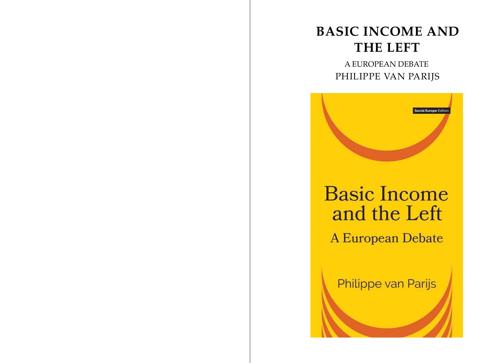
Basic Income And The Left
by
henningmeyer
Published 16 May 2018
serve all four functions as well while being intelli‐ Of course there are. Some, for example, may ques‐ gible to the ordinary European citizen. tion the wisdom of using VAT to fund the scheme. True, VAT is the most Europeanised of all major forms of taxation. But would it not make more sense Peace Dividend to use a Tobin tax or a carbon tax, for example? We A more fundamental objection is that, however can do so, but what these taxes could fund, under desirable the expected effects, it would be unfair to pretty optimistic assumptions, is an EU-wide give everyone something for nothing. This objection monthly Euro-dividend of between 10 and 14 rests on a misperception.
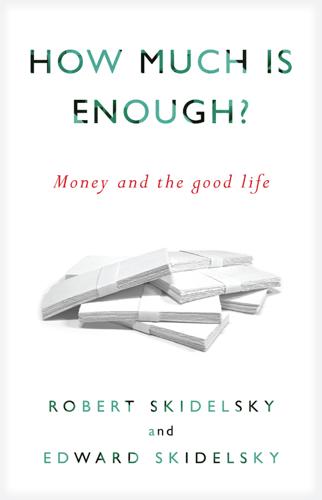
How Much Is Enough?: Money and the Good Life
by
Robert Skidelsky
and
Edward Skidelsky
Published 18 Jun 2012
In his Agathotopia (1989), Nobel Laureate James Meade reckoned that a subsistence income, equal to unemployment benefit, for all citizens could be financed through a combination of capital taxes and profits from state-owned but privately managed investment trusts. It would be set to grow in line with national income.19 Others suggest that the sale of pollution permits, like carbon credits, based on environmental impact, would be enough to finance a basic income of €1,500 in the EU.20 Taxes on capital transactions—known as Tobin taxes—are another potential source of income. In 2001, two American professors, Bruce Ackerman and Anne Alstott, put forward a costed plan for capital endowment based on a tax on private wealth.21 A small step towards a capital endowment for all was Gordon Brown’s “baby bond” scheme, the Child Trust Fund, which he set up as Chancellor of the Exchequer in 2001.
…
Adair Turner, former chairman of the UK Financial Services Authority, has called much financial innovation “socially useless.”40 From our point of view it is worse than that. It is a cause of the insatiability we seek to control. One way to rein in the financial sector would be to tax trades in financial instruments like derivatives. Such “Tobin taxes” would both serve to reduce the power of finance to dictate economic activity and provide revenue for socially desirable objects of public spending. Reducing Advertising The pressure to consume is inflamed by advertising. It is often claimed that the only effect of advertising is to make it easier for people to get what they want.
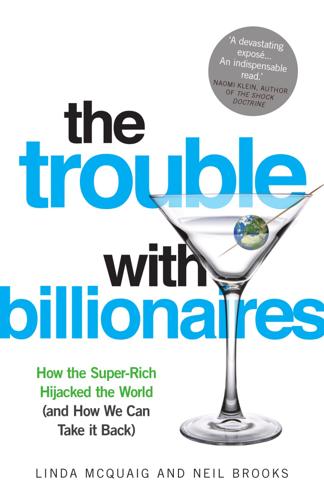
The Trouble With Billionaires
by
Linda McQuaig
Published 1 May 2013
People wanting to conceal income from authorities would then find it no easier to move money undetected around the world than to travel without a passport. Checkmate. Support the international implementation of a Financial Transaction Tax, sometimes referred to as the ‘Robin Hood Tax’ or the ‘Tobin Tax’ The idea of curbing financial speculation by imposing a tax on financial transactions was first proposed by John Maynard Keynes in 1936 during the Great Depression. His purpose wasn’t raising revenue, but rather deterring financial speculation; as he put it: ‘mitigating the predominance of speculation over enterprise’.35 A variation of Keynes’s idea was proposed in 1972 by Nobel Prize-winning economist James Tobin.
…
Cecchetti & Enisse Kharroubi, ‘Reassessing the impact of finance on growth’, conference draft of paper prepared for the Reserve Bank of India’s Second International Research Conference, Mumbai, February 2012. 41 Dean Baker et al., ‘The Potential Revenue from Financial Transaction Taxes’, Working Paper no. 212, Center for Economic Policy Research, December 2009. 42 Ron Suskind, Confidence Men: Wall Street, Washington and the Education of a President, 2nd edition (New York: HarperCollins, 2011), p. 365. 43 Heather Stewart, ‘Robin Hood tax: 1,000 economists urge G20 to accept Tobin tax’, The Guardian, 13 April 2011. 44 Warren E. Buffett has described his concept of the Ovarian Lottery on a number of occasions, including a lecture at the University of Florida School of Business, 15 October 1998. 45 Lily L. Batchelder, ‘Taxing Privilege More Effectively: Replacing the Estate Tax with an Inheritance Tax’, Discussion Paper, Hamilton Project, Brookings Institution, June 2007. 46 Ibid. 47 Institute for Fiscal Studies, The Structure and Reform of Direct Taxation (London: Allen & Unwin, 1978). 48 The Commission on Taxation and Citizenship, Paying for Progress: A New Politics of Tax for Public Spending (London: Fabian Society, 2000). 49 Ibid., p. 286 ff. 50 Bruce Ackerman & Anne Alstott, ‘Why Stakeholding?’

23 Things They Don't Tell You About Capitalism
by
Ha-Joon Chang
Published 1 Jan 2010
And this is why James Tobin, the 1981 Nobel laureate in economics, talked of the need to ‘throw some sand in the wheels of our excessively efficient international money markets’. For this purpose, Tobin proposed a financial transaction tax, deliberately intended to slow down financial flows. A taboo in polite circles until recently, the so-called Tobin Tax has recently been advocated by Gordon Brown, the former British prime minister. But the Tobin Tax is not the only way in which we can reduce the speed gap between finance and the real economy. Other means include making hostile takeovers difficult (thereby reducing the gains from speculative investment in stocks), banning short-selling (the practice of selling shares that you do not own today), increasing margin requirements (that is, the proportion of the money that has to be paid upfront when buying shares) or putting restrictions on cross-border capital movements, especially for developing countries.
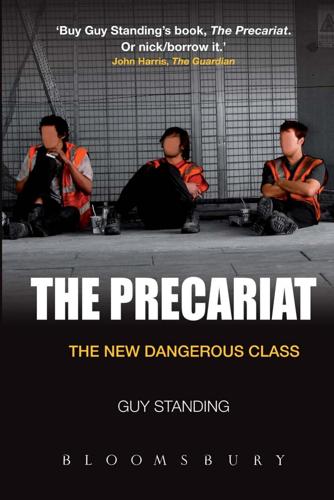
The Precariat: The New Dangerous Class
by
Guy Standing
Published 27 Feb 2011
It is not a perfect model, since its governance can result in the relative neglect of the precariat or tomorrow’s Alaskans relative to today’s. But, like the Norwegian Fund, it provides the nucleus of a capital fund mechanism that could be used to finance a modest basic income, however it might be called. The precariat would also benefit from so-called ‘Tobin taxes’, levied on speculative capital transactions. There are arguments for believing that reducing short-term capital flows would be beneficial in any event. And then there are ecological taxes, designed to compensate for the externalities caused by pollution and to slow or reverse the rapid depletion of resources.
…
(Maltby) 138 Canada 79, 114 capital funds 176–7 Capitalism and Freedom (Friedman) 156 care work 61, 86, 125–6 careers, leisure 129 cash transfers 177 see also conditional cash transfers (CCTs) CCTs (conditional cash transfer schemes) 140 Cerasa, Claudio 149 Channel 4, call centre programme (UK) 16 charities 53 children, care for 125 China 28 and contractualisation 37 criminalisation 88 deliberative democracy 181 education 73 immigrants to Italy 4–5 invasion of privacy 135 migrants 96, 106–9, 109–10 old agers 83 191 192 INDEX China 28 (Continued) Shenzhen 133, 137 and time 115 wages 43 youth 76 see also Chindia China Plus One 28 Chindia 26, 27–9, 83 see also China Chrysler Group LLC 43 circulants 90, 92 Citizens United vs Federal Election Commission (US) 152–3 civil rights 14, 94 class, social 6–8, 66–7 Coase, Ronald 29 Cohen, Daniel 57, 66, 69 collaborative bargaining 168 collective attention deficit syndrome 127 commodification of companies 29–31 of education 67–72 and globalisation 26 labour 161–2 of management 40 of politics 148–53 re- 41–2 conditional cash transfers (CCTs) 140 see also cash transfers conditionality 140, 175 and basic income 172–3 and workfare 143–5, 166–7 connectivity, and youth 127 contract status 35, 36, 37, 44, 51, 61 contractors, independent/ dependent 15–16 contractualisation 37 counselling for stress 126 Crawford, Matthew 70 credit 44 crime 5, 129–30 criminalisation 14, 145, 146 crystallised intelligence 85 cultural rights 14 de Tocqueville, Alexis 145 de-industrialisation 5, 37–8 debt, and youth 73–4 Delfanti, Alessandro 78 deliberative democracy 180–1, 182 denizens 14, 93–102, 105, 113, 117, 157–8 Denmark 150 dependent/independent contractors 15–16 deskilling 17, 33, 40, 124 developing countries 12, 27, 60, 65, 105–9 disabled people 86–7, 89, 170 discrimination age 84–5 disability 81 gender 60, 123 genetic profiling 136–7 and migrants 99, 101–2 disengagement, political 24 distance working 38, 53 dole (UK) 45 Duncan Smith, Iain 143 Durkeim, Emile 20 economic security 157, 171, 173–6 The Economist 17–18, 33, 52, 137 economy, shadow 56–7 education 10, 67–73, 135–6, 159–60 Ehrenreich, Barbara 21, 170–1 elites 7, 22, 24, 40, 50 criminality 152 and democracy 181 ethics 165 Italian 148 and the Tea Party (US) 151 empathy 22–3, 137 employment agencies 33 employment security 10b, 11, 17, 36, 51, 117 Endarkenment 70 Enlightenment 24, 70 enterprise benefits 11, 12 environmental issues 167 environmental refugees 93 Esping-Andersen, G. 41 ethics 23–4, 121–2, 165 ethnic minorities 86 EuroMayDay 1, 2, 3, 167 European Union (EU) 2, 39, 146, 147 and migrants 97, 103, 105 and pensions 80 see also individual countries export processing zones 105–6 Facebook 127, 134, 135 failed occupationality 21 INDEX family 27, 44, 60, 65, 126 fear, used for control 32 fictitious decommodification 41 financial capital 171, 176–7 financial sector jobs 39–40 financial shock 2008-9 see Great Recession Financial Times 44, 55, 121, 155 firing workers 31–2 Fishkin, James 180 Fletcher, Bill 170–1 flexibility 18 labour 23–4, 31–6, 53, 60, 61, 65 labour market 6, 120–1, 170 Ford Motor Company 42, 43 Foucault, Michel 88, 133 Foxconn 28–9, 43, 105, 137 see also Shenzhen France criminalisation 88 de-industrialisation 38 education 69 leisure 129 migrants 95, 97, 101–2, 114 neo-fascism 149 and old agers 85 pensions 79 shadow economy 56 Telecom 11 youth 65–6 fraternity 12, 22, 155 freedom 155, 167–70, 172 freelance see temporary employment freeter unions 9 Friedman, Milton 39, 156 functional flexibility 36–8, 52 furloughs 36, 50 gays 63–4 General Motors (GM) 42, 43, 54 genetic profiling 136 Germany 9 de-industrialisation 38 disengagement with jobs 24 migrants 91, 95, 100–1, 114 pensions 79 shadow economy 56 temporary employment 15, 35 wages 40 and women 62 youth and apprenticeships 72–3 193 Glen Beck’s Common Sense (Beck) 151 Global Transformation 26, 27–31, 91, 115 globalisation 5–7, 27–31, 116, 148 and commodification 26 and criminalisation 87–8 and temporary employment 34 Google Street View 134 Gorz, Andre 7 grants, leisure 180–2 Great Recession 4, 49–51, 63, 176 and education 71 and migrants 102 and old agers 82 and pensions 80 and youth 77–8 Greece 52, 56, 117, 181 grinners/groaners 59, 83–4 Habermas, Jürgen 179 Haidt, J. 23 Hamburg (Germany) 3 happiness 140–1, 162 Hardt, M. 130 Hayek, Friedrich 39 health 51, 70, 120, 126 Hitachi 84 Hobsbawm, Eric 3 hormones 136 hot desking 53 Howker, Ed 65 Human Rights Watch 106 Hungary 149 Hurst, Erik 128 Hyatt Hotels 32 IBM 38, 137 identity 9 digital 134–5 work-based 12, 15–16, 23, 158–9, 163 Ignatieff, Michael 88 illegal migrants 96–8 In Praise of Idleness (Russell) 141, 161 income security 10b, 30, 40, 44 independent/dependent contractors 15–16 India 50, 83, 112, 140 see also Chindia individuality 3, 19, 122 informal status 6–7, 57, 60, 96, 119 inshored/offshored labour 30, 36, 37 194 INDEX International Herald Tribune 21 internet 18, 127, 139, 180, 181 surveillance 134–5, 138 interns 16, 36, 75–6 invasion of privacy 133–5, 167 Ireland 52–3, 77 isolation of workers 38 Italy education 69 neo-fascism 148–9 pensions 79 Prato 4–5 and the public sector 52, 53 shadow economy 56 and temporary employment 34 youth 64 Japan 2, 30 and Chinese migrants 110 commodification of companies 30 and migrants 102, 103 multiple job holding 119–20 neo-fascism 152 pensions 80 salariat 17 subsidies 84 and temporary employment 15, 32–3, 34–5, 41 and youth 66, 74, 76, 77 job security 10b, 11, 36–8 Kellaway, Lucy 83–4 Keynes, John Maynard 161 Kierkegaard, Søren 155 Klein, Naomi 148 knowledge 32, 117, 124–5, 171 labour 13, 115, 161–2 labour brokers 33–4, 49, 110, 111, 167, 168 labour flexibility 23–4, 31–45 labour intensification 119–20 labour market flexibility 6 labour security 10–11, 10b, 31 Laos 112 lay-offs see furloughs Lee Changshik 21 legal knowledge 124–5 legal processing 50 Legal Services Act of 2007 (UK) (Tesco Law) 40 leisure 13, 128–30 see also play lesbians 63–4 Liberal Republic, The 181 Lloyds Banking Group 50–1 localism 181–2 long-term migrants 100–2 loyalty 53, 58, 74–5 McDonald’s 33 McNealy, Scott 69 Malik, Shiv 65 Maltby, Lewis 138 Manafort, Paul 152 management, commodification of 40 Mandelson, Peter, Baron 68 Maroni, Roberto 97 marriage 64–5, 92 Martin, Paul 141 Marx, Karl 161 masculinity, role models for youth 63–5 Massachusetts Institute of Technology 68–9 Mayhew, Les 81 Mead, Lawrence 143 mergers, triangular 30 Mexico 91 Middle East 109 migrants 2, 13–14, 25, 90–3, 145–6 and basic income 172 and conditionality 144 denizens 93–102, 157–8 government organised 109–13 internal 105–9 and queuing systems 103–5 and recession 102–3 Mill, John Stuart 160 Morris, William 160, 161 Morrison, Catriona 127 multinational corporations 28, 92 multitasking 19, 126–7 National Broadband Plan 134 near-sourcing/shoring 36 Negri, A. 130 neo-fascism 25, 147–53, 159, 175, 183 Netherlands 39, 79, 114, 149–50 New Thought Movement 21 New York Times 69, 119 News from Nowhere (Morris) 161 Niemöller, Martin 182 INDEX non-refoulement 93 Nudge (Sunstein/Thaler) 138–9 nudging 138–40, 155–6, 165, 167, 172, 178, 182 numerical flexibility 31–6 Obama, Barack 73, 138–9, 147, 148 Observer, The 20 occupations associations of 169–70 dismantling of 38–40 freedom in 162–4 obsolescence in 124 offshored/inshored labour 30, 36, 37 old agers 59, 79– 86, 89 old-age dependency ratio 80–1 Organisation for Economic Co-operation and Development (OECD) 27 origins of the precariat 1–5 outsourcing 29, 30, 33, 36, 37, 49 Paine, Thomas 173 panopticon society 132–40, 142–3 Parent Motivators (UK) 139–40 part-time employment 15, 35–6, 51, 61, 82 Pasona 33 paternalism 17, 29, 137, 153, 178, 182 nudging 138–40, 155–6, 165, 167, 172, 178, 182 pensions 42, 51, 52, 76–7, 79–81, 84–6 PepsiCo 137 personal deportment skills 123 Philippines 109 Phoenix, University of 71 Pigou, Arthur 117, 125 play 13, 115, 117, 128, 141 pleasure 141 Polanyi, K. 163, 169 political engagement/disengagement 24, 147 Portugal 52, 56 positive thinking 21, 86 Prato (Italy) 4–5 precariat (definition) 6, 7–13 precariato 9 precariatisation 16–18 precarity traps 48–9, 73–5, 114, 129, 144, 178 pride 22 prisoners 112, 146 privacy, invasion of 133–5, 167 private benefits 11 productivity, and old age 85 proficians 7–8, 15, 164 proletariat 7 protectionism 27, 54 public sector 51–4 qualifications 95 queuing systems 103–5 racism 97–8, 101, 114, 149 Randstad 49 re-commodification 41–2 recession see Great Recession refugees 92, 93, 96 regulation 23, 26, 39–40, 84, 171 Reimagining Socialism (Ehrenreich/ Fletcher) 170–1 remote working 38, 53 rentier economies 27, 176 representation security 10b, 31 retirement 42, 80–3 rights 14, 94, 145, 163, 164–5, 169 see also denizens risk management 178 Robin Hood gang 3 role models for youth 63–5 Roma 97, 149 Rossington, John 100 Rothman, David 88 Russell, Bertrand 141, 161 Russell, Lucie 64 Russia 88, 115 salariat 7, 8, 14, 17, 32 Santelli, Rick 150 Sarkozy, Nicolas 69, 97, 149 Sarrazin, Thilo 101 Schachar, Ayelet 177 Schneider, Friedrich 56 Schwarzenegger, Arnold 71 seasonal migrants 98–100 security, economic 157, 171, 173–6 self-employment 15–16, 66, 82 self-esteem 21 self-exploitation 20, 122–3 self-production 11 self-regulation 23, 39 self-service 125 services 37–8, 63 195 196 INDEX Sex, Drugs and Chocolate: The Science of Pleasure (Martin) 141 sex services 63 sexism, reverse 123 shadow economy 56–7, 91 Shenzhen (China) 133, 137 see also Foxconn Shop Class as Soulcraft (Crawford) 70 short-time compensation schemes 55–6 side-jobs 119–20 skill reproduction security 10b skills 157, 176 development of 30, 31, 40 personal deportment 123 tertiary 121–4 Skirbekk, Vegard 85 Smarsh 138 Smile or Die (Ehrenreich) 21 Smith, Adam 71 snowball theory 78 social class 6–8, 66–7 social factory 38, 118, 132 social income 11–12, 40–5, 51, 66 social insurance 22, 104 social memory 12, 23, 129 social mobility 23, 57–8, 175 social networking sites 137 see also Facebook social rights 14 social worth 21 sousveillance 134, 135 South Africa, and migrants 91, 98 South Korea 15, 55, 61, 75 space, public 171, 179–80 Spain BBVA 50 migrants 94 and migrants 102 pensions 79 and the public sector 53 shadow economy 55–6 temporary employment 35 Speenhamland system 55, 143 staffing agencies 33–4, 49, 110, 111, 167, 168 state benefits 11, 12 status 8, 21, 32–3, 94 status discord 10 status frustration 10, 21, 63, 67, 77, 78, 79, 89, 114, 123, 160 stress 19, 126, 141, 141–3 subsidies 44, 54–6, 83–6, 176 suicide, work-related 11, 29, 58, 105 Summers, Larry 148 Sun Microsystems 69 Sunstein, Cass 138–9 surveillance 132–6, 153, 167 see also sousveillance Suzuki, Kensuke 152 Sweden 68, 110–11, 135, 149 symbols 3 Taking of Rome, The (Cerasa) 149 taxes 26 and citizenship 177 France 85 and subsidies 54–5 Tobin 177 United States (US) 180–1 Tea Party movement 150–1 technology and the brain 18 internet 180, 181 surveillance 132–6 teleworking 38 temporary agencies 33–4, 49, 110, 111, 167, 168 temporary employment 14–15, 49 associations for 170 Japan 9 and numerical flexibility 32–6 and old agers 82 and the public sector 51 and youth 65 tertiarisation 37–8 tertiary skill 121–4 tertiary time 116, 119 tertiary workplace 116 Tesco Law (UK) 40 Thailand, migrants 106 Thaler, Richard 138–9 therapy state 141–3, 153 Thompson, E.P. 115 time 115–16, 163, 171, 178 labour intensification 119–20 tertiary 116, 119 use of 38 work-for-labour 120–1 titles of jobs 17–18 Tobin taxes 177 Tomkins, Richard 70 towns, company 137 INDEX toy-factory incident 108–9 trade unions 1, 2, 5, 10b, 26, 31, 168 and migration 91 public sector 51 and youth 77–8 see also yellow unions training 121–4 triangular mergers 30 triangulation 34 Trumka, Richard 78 trust relationships 8–9, 22 Twitter 127 Ukraine 152 undocumented migrants 96–8 unemployment 145 benefits 45–8, 99, 104 insurance for 175 voluntary 122 youth after recession 77 uniforms, to distinguish employment status 32–3 unions freeter 9 yellow 33 see also trade United Kingdom (UK) 102–3 benefit system 173 Channel 4 call centre programme 16 company loyalty 74–5 conditionality 143–5, 166–7 criminalisation 88 de-industrialisation 38 disabled people 170 and education 67, 70, 71 financial shock (2008-9) 49–51, 71 labour intensification 119 Legal Services Act (2007) (Tesco Law) 40 leisure 129 migrants 91, 95, 99, 103–5, 114, 146 neo-fascism 150 paternalism 139–40 pensions 43, 80 and the public sector 53 public spaces 179 and regulation of occupational bodies 39 shadow economy 56 and social mobility 56–8 and subsidies 55 197 temporary employment 15, 34, 35 as a therapy state 142 women 61–2, 162 workplace discipline 138 youth 64, 76 United States (US) care for children 125 criminalisation 88 education 69, 70–1, 73, 135–6 ethnic minorities 86 financial shock (2008-9) 49–50 migrants 90–1, 93, 94, 97, 103, 114 neo-fascism 150–1, 152–3 old agers 82–3, 85 pensions 42, 52, 80 public sector 52 regulation of occupational bodies 39 social mobility in 57–8 subsidies 55, 56 taxes 180–1 temporary employment 34, 35 volunteer work 163 wages and benefits 42 women 62, 63 youth 75, 77 universalism 155, 157, 162, 180 University of the People 69 University of Phoenix 71 unpaid furloughs 36 unpaid leave 50 uptitling 17–18 utilitarianism 88, 132, 141, 154 value of support 11 Vietnam 28, 111–12 voluntary unemployment 122 volunteer work 86, 163–4 voting 146, 147, 181 Wacquant, L. 132 wages 8, 11 and benefits 41–2 family 60 flexibility 40–5, 66 individualised 60 and migrants 103 and temporary workers 32, 33 Vietnam 28 see also basic income Waiting for Superman (documentary) 69 Wall Street Journal 35, 163 198 INDEX Walmart 33, 107 Wandering Tribe 73 Weber, Max 7 welfare claimants 245 welfare systems 44 Wen Jiabao 105 Whitehead, Alfred North 160 Williams, Rob 62 wiretapping 135 women 60–5 and care work 125–6 CCTs (conditional cash transfer schemes) 140 labour commodification 161 and migration 92 multiple jobholding 119–20 reverse sexism 123 work 115, 117, 160–1 and identity 158–9 and labour 13 right to 145, 163, 164–5 security 10b work-for-labour 120–1, 178 work-for-reproduction 124–7 work–life balance 118 worker cooperatives 168–70 workfare 143–5, 166–7 working class 7, 8 workplace 116, 122, 130, 131 discipline 136–8 tertiary 116 Yanukovich, Victor 152 yellow unions 33 youth 59, 65–7, 89, 156 commodification of education 67–72 connectivity 127 and criminality 129–30 generational tension 76–7 and old agers 85 precarity traps 73–5 prospects for the future 78–9 and role models 63–5 streaming education 72–3 zero-hour contracts 36

Rogue States
by
Noam Chomsky
Published 9 Jul 2015
For his reflections on the East Asian crisis, see his WIDER Annual Lectures 2, UN University, 1997; “An Agenda for Development in the Twenty-First Century,” Annual World Bank Conference on Development Economics 1997, IBRD, 1998. 15. David Felix, “The Tobin Tax Proposal: Background, Issues, and Prospects,” Working Paper No. 191, Washington University, June 1994; see his and other papers in Mahbub Ul Haq, Inge Kaul, Isabelle Grunberg, The Tobin Tax: Coping with Financial Volatility (Oxford, 1996). 16. Argentine political scientist Atilio Boron, “Democracy or Neoliberalism?,” Boston Review, Oct.- Nov. 1996; see his State, Capitalism, and Democracy in Latin America (Lynne Rienner, 1996). 9.

Powers and Prospects
by
Noam Chomsky
Published 16 Sep 2015
A study directed by Paul Volcker, formerly head of the Federal Reserve, attributes about half of the substantial slow-down in growth since the early 1970s to this factor. International economist David Felix makes the interesting observation that even the productive sectors that would benefit from the Tobin tax have joined financial capital in resisting it. The reason, he suggests, is that elites generally are ‘bonded by a common objective, . . . to shrink, perhaps even to liquidate, the welfare state’. The instant mobility of huge sums of financial capital is a potent weapon to force governments to follow ‘fiscally responsible policies’, which can bring home the sharply two-tiered Third World model to the rich societies.
…
Lawrence Mishel and Jared Bernstein, The State of Working America: 1994–95, (M. E. Sharpe, 1994); Edward Wolff, Top Heavy (Twenty Century Fund, 1995). 39. Fortune, May 15, May 1; Business Week, July 17, 1995. 40. For details, see World Orders. Japan–US figures, 1993 UN World Investment Report, cited by Vincent Cable, Daedalus, Spring 1995. 41. Felix, ‘The Tobin Tax Proposal’, Working Paper #191, June 1994, UN Development Program; Challenge, May/June 1995. Wall Street Journal, May 9, 1994. Chapter 6 1. What follows is based on notes for a talk at Macquarie University in January 1995, updated with some more recent material, some adapted from my articles in Ha’aretz (Feb. 4, 1994) and Struggle (Ben-Gurion University, October, 1994).
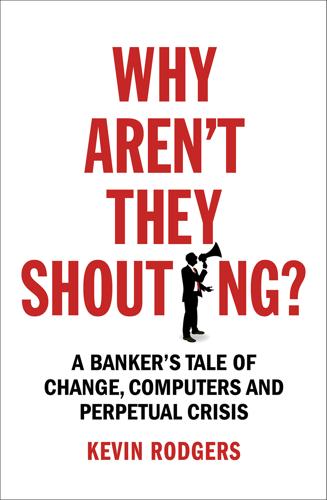
Why Aren't They Shouting?: A Banker’s Tale of Change, Computers and Perpetual Crisis
by
Kevin Rodgers
Published 13 Jul 2016
In 2010, the IMF, at the prompting of the G20, suggested that banks make a ‘financial stability contribution’ (dubbed the ‘bank tax’) to ensure that ‘the financial sector could make a fair and substantial contribution toward paying for any burden associated with government interventions to repair the banking system’.24 Subsequently the emphasis shifted towards measures that would fund the cost of any future intervention. Numerous schemes have been implemented or proposed: charges related to balance sheet size; ‘bonus taxes’ levied in proportion to discretionary pay levels; extra taxes on profits; a ‘financial transactions tax’ or ‘Tobin tax’ (after the 1972 suggestion by Nobel Prize-winning economist James Tobin) on every transaction. In my view these levies all have a critical drawback in that they are only tangentially related to the risk, and therefore the real economic cost, created by the bank being levied. Charges based on balance sheet size ignore the capital strength of the bank.
…
(Frankie Valli and the Four Seasons), 3–5, 9 oil, 139, 148, 149–50, 220 Oktoberfest, 144–5 one-stop shop, 145, 160, 168, 230 online banking, 233–4 OPTICS, 101, 103, 131, 153, 170 option-based recapitalisation charge (OBRC), 217–18 options, 10, 13, 20, 23, 27, 33–4, 38, 43–7, 49, 77, 91–114, 121, 128, 134, 137, 140, 141, 149, 150, 218, 222–3 Asian options, 106 barrier products, 104, 107, 108 carry trade, 108–10 commoditisation, 110–11 delta hedging, 97 double knockouts, 107 exotics, 105–11, 127 foreign exchange, 10, 13, 20, 23, 27, 33–4, 38, 43–7, 49, 77, 95–114, 222–3 gamma, 97–8, 100 Greeks, 98, 99, 101, 105, 107, 110, 111, 112, 114, 127, 129, 150, 157, 158, 182, 219 lattice methods, 112 lookbacks, 107 over-the-counter (OTC) market, 96, 209 power options, 107 pricing of, 91–5, 107, 111–14, 128, 133, 150 range trades, 107, 108 rho, 98 risk-weighted assets (RWA), 124–31, 134, 166, 211 spoofing, 99, 192–3 strike price, 94, 95, 104, 113, 218 theta, 98, 140 time decay, 98 tree approach, 112–14 vega, 98 volatility, 94, 98, 128–9 Organisation for Economic Co-operation and Development (OECD), 124–5, 139, 207 over-the-counter (OTC) market, 96, 209 P Panopticon, 199 Patton, George Smith, 84 pay, 43, 161–3, 210, 216 PayPal, 233 peer-to-peer, 234 pension funds, 9, 61, 76, 96 Philippines, 137 ‘pipes’, 71, 72 ‘pips’, 13, 18, 41, 65, 73, 77 Piranha, 48 Pittsburgh, Pennsylvania, 209 Plankton Strategy, 38, 40, 55, 58 Poland, 117, 167 Ponzi schemes, 205–6 Portugal, 173 power options, 107 Prebon Yamane, 28 Precision Pricing, 65 prime brokerage (PB), 61–3, 66, 120, 209 principal model, 7–8 principles-based regulation (PBR), 201–2 Prisoners’ Dilemma, 84, 186, 197, 201 Procter and Gamble, 109, 136, 155 production credits, 49, 50 proprietary trading, 22, 31, 39, 46–7, 125 Prosper, 234 Pushkin, Alexander, 30 Q quadratic equations, 105–6 quantitative analysis, xiv, 100–1, 103–8, 110–14, 126, 150, 158 quantitative easing, 82 R Rand, Ayn, 202 range trades, 107 ratings agencies, 155–8, 208, 219 rational markets, 202–6 recapitalisation, 217 recovery value, 151, 157, 160 regulation, 73, 80, 131, 148, 152, 168, 174, 180, 186–7, 191–6, 198–9, 200–18, 229, 231, 232 BaFin, 200, 202 bank tax, 216 Basel Accords, 124, 125, 130, 166, 207–9, 211, 217, 231 Big Bang (1986), 201 Central Counterparties (CCPs), 209, 213–15, 229 Commodity Futures Trading Commission (CFTC), 202 computers, 209, 213 ‘cops on the beat’, 215 Dodd–Frank Act (2010), 209, 230 European Banking Authority (EBA), 211–12 Financial Services (Banking Reform) Act (2013), 210 Financial Stability Board (FSB), 212, 214, 216 Glass–Steagall Act (1933), 168, 201, 230 Gramm–Leach–Bliley Act (1999), 168, 201 option-based recapitalisation charge (OBRC), 217–18 principles-based regulation (PBR), 201–2 rational markets, 6, 202–6 Riegle–Neal Act (1994), 168 shadow banking, 214–15 surveillance, 110, 190, 195–9 trade repositories, 209–10 relative value trades, 72–3 repo markets, 171 request for quote (RFQ), 50, 51 retail banking, 169, 229–30, 233 retail FX, retail aggregators, 21, 61, 66, 74, 75, 79, 82–3 Reuters, 9, 22–3, 188 Reuters Dealing machines, 23, 25–8, 31, 32, 50, 59, 73 Revolutionary Application Program Interface Development (RAPID), 56–9, 77, 101 rho, 98 Riegle–Neal Act (1994), 168 risk, risk management, 15, 16, 19, 20–1, 24, 29, 31, 38–9, 40, 44–5, 53–5, 56–9, 64, 67, 70–1, 72, 73, 76, 77, 79, 99, 101–8, 110–14, 121–31, 135–6, 139, 142, 144, 150, 152, 157–63, 166– 7, 169–70, 172, 174, 200–1, 206–7, 209, 213, 219, 221, 224–7, 233 agency-like approach, 119, 127 Automated Risk Manager (ARM), 53–5, 56–9, 64, 67, 70–1, 72, 73, 76, 79, 101, 129, 169 BTAnalytics, 107, 108, 112, 134, 150 collateralised debt obligations (CDOs), 154, 156, 158–63 complex risk, 159 concentration, 213 counterparty credit risk, 141–2, 172, 201, 202–3, 209 credit default swaps (CDSs), 151–3, 157, 158, 164, 225 credit risk, 7, 8, 62–3, 123, 125–6, 130, 141, 151, 209 DBAnalytics, 150, 153 foreign exchange, 15, 16, 19, 20–1, 24, 29, 31, 38, 39, 40, 44–5, 49, 51, 53, 62, 77, 192 market risk, 7, 62, 123, 126, 130, 167 model dopes, 221–2 OPTICS, 101, 103, 131, 153, 170 perception gap, 220, 224 quantitative analysis, xiv, 100–1, 103–8, 110–14, 126, 150, 158 Revolutionary Application Program Interface Development (RAPID), 56–9, 77, 101 risk-adjusted return on capital (RAROC), 126–7, 131, 144, 219 risk-weighted assets (RWA), 124–31, 134, 166, 208, 211 shares, 92 Spreadsheet Solutions Framework (SSF), 111, 121, 138, 153 value at risk (VaR), 127–31, 135–6, 139, 142, 157, 158, 169, 170, 172, 174, 204, 207, 219, 226, 227 RiskMetrics, 131 rogue systems, 79–80 Rolling Stones, 87, 89, 151, 171, 172 Royal Bank of Scotland (RBS), 48, 217, 233 ‘Rule 575 – Disruptive Practices Prohibited’, 193 Russia, 30, 33, 38, 76, 114–32, 137–42, 146, 148, 150, 151, 152, 163, 172, 175, 199, 202, 204, 207, 221, 224, 228 Financial Crisis (1998), xi–xii, 29, 114, 115–16, 118–22, 124, 137–43, 146, 163, 172, 175, 202, 207, 221, 224, 228 rouble, 115–16, 118–22, 131, 137, 138, 139 rouble-denominated bonds (GKOs), 118–32, 134, 138–43, 149, 152, 158, 159, 173 S sales-traders, 50, 78 salespeople, 8–9, 11, 13–15, 20, 24, 28, 29, 33, 35, 37, 46, 47–52, 68, 96, 120 Salomon Brothers, 122, 133–4 Sanford, Charlie, 35, 126 Sarao, Navinder Singh, 193 Scholes, Myron, 94–5, 97 screen scraping, 32–3, 50, 59 Securities and Exchange Commission, 215 securities, 91, 145, 155 September 11 attacks (2001), 52, 146, 147 settlements, 5, 24, 40, 44, 51, 61, 101, 209 shadow banking, 214–15 shareholders, 25, 35, 47, 73, 84, 90, 124, 169, 172, 205 shares, 50, 60, 91, 113, 128, 212, 217 forward trades, 91–4, 133, 152 recapitalisation, 217 tree approach, 113 volatility, 94, 128–9 short-dated deposits, 8 Silicon Valley, 234 Singapore, 37, 137, 211 skewed prices, 18, 19, 73, 96, 98 slippage, 188–9 smartphones, 233 Soros, George, 24 South Africa, xvi Soviet Union (1922–91), 22, 64, 199, 204 Spain 87–9, 151, 159, 171, 172 ‘special purpose vehicle’, 154 spoofing, 99, 192–3 spot, 3–28, 33–4, 42–4, 46, 48–55, 67, 76, 77, 91, 96, 97, 98–9, 108, 111, 118, 122, 159, 165, 169, 188, 189, 199, 201, 222 automation, 23–8, 31–3, 42, 48–55, 56–84, 111, 199, 201 brokers, 3–28, 33, 43, 63, 192 traders, 3–31, 33, 35, 38, 41, 43, 46, 50, 52–4, 67–8, 73, 76, 78, 96, 99, 122, 189 voice traders, 54, 67, 76, 122 spread, 12, 14–15, 16, 18, 19, 31, 41–2, 44, 45, 53, 55, 61, 64, 68, 69, 75, 80, 96, 225 spread crossing, 18, 19 Spreadsheet Solutions Framework (SSF), 111, 121, 138, 153 spreadsheets, 33, 38, 40, 107, 111, 219 Standard and Poor’s (S&P), 155, 157, 160 Stanford University, 211 stocks, 50, 60, 79, 89, 117, 129, 133, 136, 138, 147–8, 203–4 indexes, 147–8 streamlining, 230–2 Stress VaR, 207, 211 strike price, 94, 95, 104, 113, 218 structured products, 44 structuring, 153, 219 student loans, 155, 231 sub-prime mortgages, 74, 88–90, 159–61, 170–2, 207, 227 suits, 132, 140–1, 149 surveillance, 110, 190, 195–9 swaps, 8, 92, 119–20, 121, 125, 126, 132, 134, 136, 141, 148, 149, 152, 173 Sweden, 148, 167 SWIFT, 23 Switzerland, 10, 81–3, 120, 211 franc, 9, 20, 31, 81–3 Swiss National Bank, 81–3 T Telerate, 9 ‘ten sigma event’, 135 Thailand, 135, 136, 139 theta, 98 ‘Things Can Only Get Better’ (D:Ream), 120, 121 time decay, 98 Tobin Tax, 216 Tokyo, Japan, 72 Tolstoy, Leo, 30 ‘too big to fail’, 90, 217 total return swaps (TRSs), 119–20, 136, 152 tracker funds, 147–8 trade repositories, 209–10 tranches, 154–9, 161, 174, 208 transparency, 141, 143, 151, 170, 212, 219 ‘tree approach’, 112–14 ‘trial by meeting’, 45, 52 triangle arbitrage, 31–2, 42, 54, 91, 122 Triangle Man, 31–2, 42, 54, 91, 122 Triple I High Risk Opportunities Fund, 116, 141 Troubled Asset Relief Program (TARP), 174, 175 Truth and Reconciliation, xvi Turkey, 231 Tuscany, Italy, 78, 115–16, 141 two-way pricing, 11–21, 23, 99 U UBS, 48, 52, 55, 59, 65, 68, 167, 197, 227 Ulster Bank, 233 United Kingdom, 22, 48, 89, 117, 120, 145, 163, 190, 200, 201–2, 203, 210, 233–4 Big Bang (1986), 201 Exchange Rate Mechanism Crisis (1992), xi, 22, 102–3 Financial Services Act (2013), 210 Flash Crash (2010), 79–80, 193 FX-fixing scandal (2013), 190 general election (1997), 120 LIBOR scandal (2012), 181–7, 188, 189, 190, 197, 198 London, England, vii–x, xi, 3, 9, 15, 35, 69, 72, 76, 79, 91, 120, 121, 137, 140, 193, 199, 202, 209 Northern Rock crisis (2007), 89, 163 pound, 9, 13, 28, 53, 184 principles-based regulation (PBR), 201–2 RBS recapitalisation (2008), 217 RBS/Ulster Bank system failure (2012), 233 Vickers Report (2013), 211, 230 United States, vii, xi, 9, 52, 56, 64, 69, 72, 74, 88–90, 108, 120, 143, 159–60, 168, 170–2, 196, 200, 203–6, 207, 209, 210, 212 Black Monday (1987), 108, 138, 204, 207 Comprehensive Capital Analysis and Review (CCAR), 212 Congress, 202, 205 Dodd–Frank Act (2010), 209, 230 dollar, 9, 12, 14, 17–18, 23, 28, 31, 53, 69, 71–2, 73, 79, 88, 96, 97, 99, 100, 104, 118, 119, 135, 136, 140, 184–6, 189 Federal Reserve, xii, 90, 109, 143, 187, 202–6, 212 Flash Crash (2010), 79–80, 193 Glass–Steagall Act (1933), 168, 201, 230 Gramm–Leach–Bliley Act (1999), 168, 201 Lehman Brothers bankruptcy (2008), 75, 89, 172–4, 179, 180, 217, 226, 230, 232 New York, 9, 35, 71, 72, 79, 88, 109, 169, 202 Riegle–Neal Act (1994), 168 September 11 attacks (2001), 52, 146, 147 Subprime Crisis (2007), 74, 88–90, 160–1, 170–2, 207, 227 Treasury bills, 119, 129, 133, 147 Vietnam War (1955–75), 181 Wall Street Crash (1929), 168 universal banking model, 230 V Valli, Frankie, 3–5, 9 value at risk (VaR), 127–31, 135–6, 139, 142, 157, 158, 169, 170, 172, 174, 204, 207, 219, 226, 227 Stress VaR, 207, 211 variation margin, 120, 141 vega, 98 Vickers Report (2013), 211, 230 voice traders, 54, 67, 76, 122 volatility, 14, 26, 46–7, 74–5, 80, 94, 98, 128–9, 137 Volker, Paul, 230 W Wall Street Crash (1929), 168 ‘Watanabe, Mrs’, 61, 75, 79, 82 weather derivatives, 144–5, 146 Wendt, Froukelien, 214 West Texas Intermediate, 139 Wheatley Report (2012), 184, 188 ‘window, the’ 118, 137, 188 ‘wisdom of crowds’, 204 WM/R, 187–8 World Cup 1998 France, 140 2014 Brazil, 195 World War I (1914–18), 207 X XTX, 233 Y Yale University, 110 ‘yours-and-mine’, 15–16, 18, 19, 192 Z zero coupon bonds, 118–32, 134, 138–43, 149, 152, 158, 159, 173 Zombanakis, Minos, 181–2 Zopa, 234 This ebook is copyright material and must not be copied, reproduced, transferred, distributed, leased, licensed or publicly performed or used in any way except as specifically permitted in writing by the publishers, as allowed under the terms and conditions under which it was purchased or as strictly permitted by applicable copyright law.
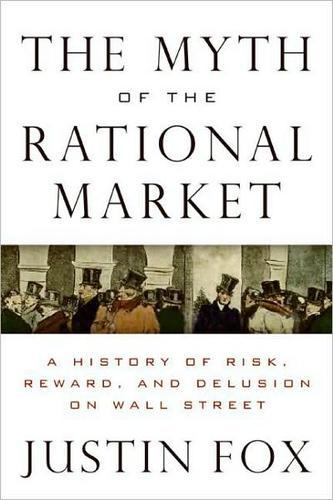
The Myth of the Rational Market: A History of Risk, Reward, and Delusion on Wall Street
by
Justin Fox
Published 29 May 2009
The Fed’s success in bringing markets back to life in 1987 and 1998 had political and regulatory implications. In the wake of the 1987 crash there was much talk of the need to tax financial market transactions to throw sand in the wheels of hyperactive markets. These proposals normally go by the name “Tobin tax,” after economist James Tobin, who in the 1970s proposed such a levy on foreign currency transactions. John Maynard Keynes had already broached a similar idea in his General Theory, and in 1929 U.S. senator Carter Glass had briefly thrown markets into a tizzy with a plan for a 5 percent tax on sales of stock that had been held for less than sixty days.27 In any case, interest in such measures faded quickly—in the United States, at least—as markets recovered and then boomed in the 1990s.
…
See also computers telecommunications firms, 266–67 Texaco, 271–72 Thaler, Richard, 328 and behavioral finance, 186–87, 201, 288–89, 292–95, 296–97, 298 and fund management strategies, 253 and market anomalies, 206 and market crashes, 233 and the rational market debate, 191–92, 287–88 and risk modeling, 184–88 satirical depiction of, 287–88 and Shleifer, 252 Théorie de le spéculation (Bachelier), 65 The Theory of Finance (Fama and Miller), 105 Theory of Games and Economic Behavior (VonNeumann), 50–51 The Theory of Interest (Fisher), 36 The Theory of Investment Value (Williams), 53–54, 87 Theory of Monopolistic Competition (Chamberlin), 188–89 Thomas Aquinas, xiii, xiv Thorp, Edward O., 146–47, 214, 216–21, 222–23, 230, 240, 242, 328 3Com, 262 three-factor model, 209–10 tight prior equilibrium, 89–90 Time Warner, 267 Tito, Dennis, 152 Tobin, James, 244, 302 Tobin tax, 244 trade deficits, 230 Travelers, 241 Treasury Inflation-Protected Securities (TIPS), 19 Treynor, Jack, 83–85, 88, 122–23, 125–27, 132, 139, 141, 149, 329 Trilling, Lionel, 91 Tsai, Gerry, 120, 124–25, 166 tuberculosis, 4, 12–13, 16 tulip market, 15–16 Tullock, Gordon, 159 Tversky, Amos, 176–77, 183, 185–86, 191–92, 201, 289, 291, 316, 329 “Uncertainty, Evolution and Economic Theory,” 93 United Kingdom, 40, 48 University of California, Irvine, 216 University of California, Los Angeles (UCLA), 86 University of Chicago (Chicago School of Economics) and academic isolation, 89–90 early growth of, 94–97 and efficient market hypothesis, xiii and experimental economics, 190 and Follies event, 287–89 founding of, 94–97 and Hayek, 92 and hostile takeovers, 167–68 and Knight, 84–85 and market efficiency, 101–5 and Miller, 237 and Mitchell, 31 and portfolio theory, 169 and the rational market hypothesis, 180 and role of businesses, 268 and Samuelson, 60–61 and unmanaged funds, 111 University of Chicago Law School, 157–58 University of Chicago Press, 90–91 University of Rochester, 107, 169, 275 Unruh, Jesse, 272, 273 U.S. and Foreign Securities Corp., 114 U.S.
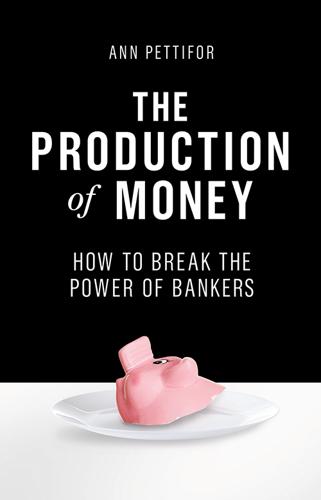
The Production of Money: How to Break the Power of Banks
by
Ann Pettifor
Published 27 Mar 2017
Closing doors to footloose, speculative, mobile capital Keynes understood that under a bank-money system, not only was reliance on foreign capital over but that, in order to manage the economy, countries should actually close their borders to footloose, mobile international capital. To do so he advocated capital control: the taxing of cross-border capital flows. Capital controls are taxes, and differ from exchange controls. The latter place limits on the amount of a nation’s currency that can be taken abroad. Instead, the financial transaction tax or Tobin tax is a form of capital control, a tax on and ‘sand in the wheels’ of capital flows. Today’s excessively complex globalised financial system is very different from that of Keynes’s day. But given that complexity, and given the propensity of risk assessors, CEOs and the part-time members of globalised company boards to make catastrophic errors of judgement, a sound regulatory system is now an even greater imperative.
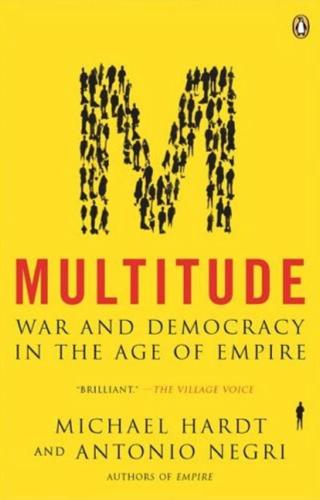
Multitude: War and Democracy in the Age of Empire
by
Michael Hardt
and
Antonio Negri
Published 1 Jan 2004
The first points primarily to neoliberal regimes and unregulated capital as the source of problems, whereas the second focuses principally on forms of power, both political and economic, that exert control over production and circulation. Consider as an example of the first strategy the group ATTAC and its proposal of the Tobin tax, which is a currency transaction tax, first conceived by Nobel laureate James Tobin, that would impose a small tax on all international currency exchanges and contribute the resulting tax revenue to the nation-states. The proponents argue that one benefit of such a tax is that it would help control the volatility of international financial markets and thereby avoid or moderate the financial crises caused in part by rapid currency trading: “Throwing sand in the wheels of global finance” is Tobin’s phrase.
…
One limitation of this strategy, from our perspective, is that it relies so heavily on the beneficial actions of sovereign nation-states. It seems to us that nation-states, both the most powerful ones and the least, do not act consistently to alleviate poverty and inequality. With this in mind, some propose a modification of the Tobin tax that would contribute the revenues from the currency tax not to nation-states but to a democratic global body combining this economic proposal with one of the proposals to reform representative systems we saw above.102 One could even fund the United Nations or a global parliament with this tax, thereby freeing it from financial reliance on nation-states.
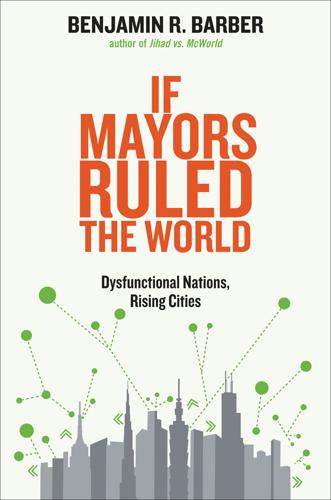
If Mayors Ruled the World: Dysfunctional Nations, Rising Cities
by
Benjamin R. Barber
Published 5 Nov 2013
It might also establish and finance a modest secretariat overseeing the formation of a “Global Association of Cities” and participating in creating the parliament and developing a communications strategy. Indeed, the need to finance the process leading to a parliament and fund the parliament itself raises important questions. The easy solution might be tithing by participating cities, but a more creative approach could use the so-called Tobin Tax on international financial and currency exchanges (a tiny tax of circa .01 percent on each transaction). Finally, an inspirational mayor or mayors dedicated to building a new global governance edifice—elected leaders in Seoul, Stuttgart, New York, and Gdansk, for example, and others voicing interest—will be enormously important in giving real life to what is only a paper idea.
…
See Schuster, Wolfgang Suburbs, 58, 65, 189, 366–367n4 Subversive art, 277, 393n7 Suez Canal, 114 Sugar Hill, N.H., as rebel town, 324 Supranationality, 156–157 Surveillance, 244–245, 256 Syracuse, N.Y., financial crisis, 186 Tan, Tony, 142–143 Tea Party, 322 Technology: cost of innovative, 257–258; digital, 241–267; effects of evolving, 250; and participatory budgeting, 307–308. See also Communications technology Telecommunications Act (1996), 245, 254 Terrorism, 22, 107, 124–125, 126, 127 Tobin Tax, 356 Tocqueville, Alexis de, 35, 109, 170, 226, 235, 280 Tolerance, 70 Top-down revolutions, 299–300 Trade centers, 63–64 Trading cities, 114 Traffic closures, 196–197 Transportation inequality, 195–197 Treaties, U.S. refusal to sign, 147 Trees and air pollution, 206, 382n72 Trias, Xavier, 337 Trust in local government, 226, 385n25 Tsarnaev brothers, 107, 125, 126 Tucson, Arizona, bike-share program, 137 Twitter, 253 “Tyrannopolis,” 36 UCLG (United Cities and Local Governments), 6, 111, 316, 337 UITP (International Association of Public Transport), 118–119 UKCOD (United Kingdom Citizens Online Democracy), 263 U.K.
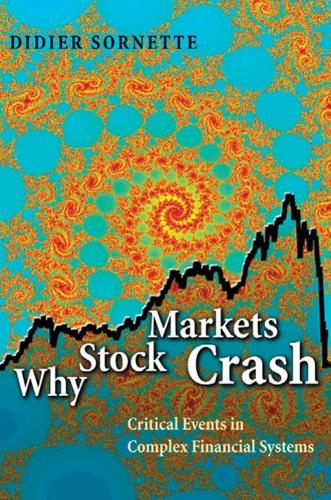
Why Stock Markets Crash: Critical Events in Complex Financial Systems
by
Didier Sornette
Published 18 Nov 2002
In 1987, economist and Nobel prize winner James Tobin suggested two possible routes for reform of the international monetary system in order to control the world’s speculative financial system and the “casino economy” [439]: 1. The first route consists in making currency transactions more costly to reduce capital mobility and speculative exchange rate pressures. This approach, which has become known as the “Tobin tax,” has become most popular among many new economists in the form of an internationally uniform tax on all spot conversions of one currency into another, proportional to the size of the transaction. Conventional anti– Tobin tax arguments include that it will dry up liquidity, be impossible to collect, and invite offshore forex operations. 2. The second route consists in a greater world economic integration, implying eventual monetary union and a World Central Bank.
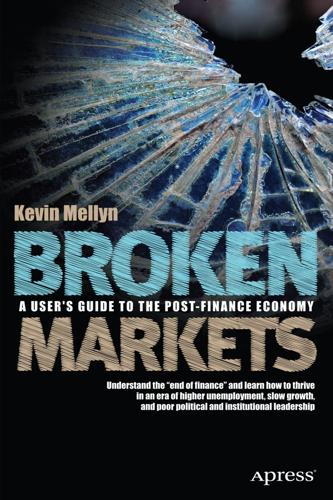
Broken Markets: A User's Guide to the Post-Finance Economy
by
Kevin Mellyn
Published 18 Jun 2012
The world economy has around $70 trillion in total output per year in goods and services, a sum that the interbank and securities markets flip over several times a week in trading activity. Many commentators, including Lord Turner of the UK Financial Services Authority, have questioned the social utility of all this financial market trading. Leading continental European countries have embraced the idea of a so-called Tobin tax, essentially a small percentage of each ticket, on wholesale financial trades to reduce incentives to trade and raise revenue for EU states, a move bitterly opposed by the UK, which forms the epicenter of all this activity. Certainly, interbank trading seems only loosely connected to the real economy, and as long as governments backstop the big banks, it looks a lot like a game in which the punters can win big but will always get their debts paid off if they lose.
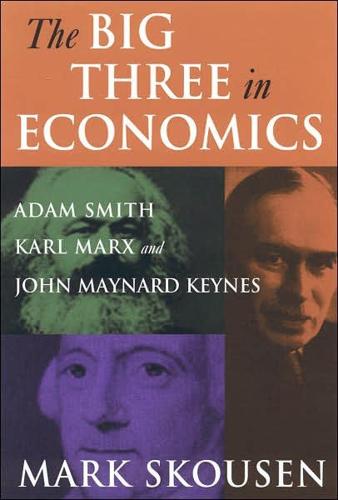
Big Three in Economics: Adam Smith, Karl Marx, and John Maynard Keynes
by
Mark Skousen
Published 22 Dec 2006
This was by no means "state socialism," but it could mean government ownership of the entire capital market. Keynes also sanctioned a small "transfer tax" on all securities sales as a way to dampen speculative fever.11 11. Nobel laureate James Tobin has entertained a similar measure, known as the Tobin tax on stock and foreign exchange transactions, a legal step that would surely reduce liquidity and enlarge the bid-ask spreads on stocks and foreign exchange. A Turning Point in Twentieth-Century Economics Keynsesian economics is ... the most serious blow that the authority of orthodox economics has yet suffered.
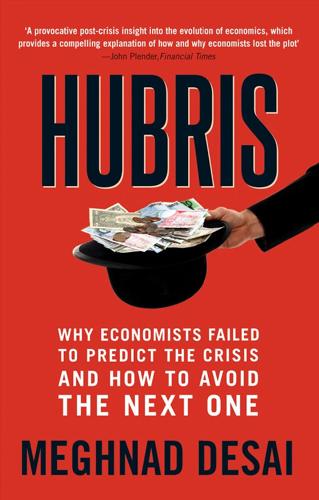
Hubris: Why Economists Failed to Predict the Crisis and How to Avoid the Next One
by
Meghnad Desai
Published 15 Feb 2015
(i), (ii) Rothschilds (i) Roubini, Nouriel (i) Royal Charter, grants of monopoly (i) rules of competition (i) Russia (i), (ii) Russian revolution (i), (ii) saltwater economists (i), (ii) Samuelson, Paul (i), (ii), (iii), (iv) “Analytical Aspects of an Anti–Inflation Policy” (with Robert Solow) (i) Say, Jean-Baptiste (i) Say’s Law (i), (ii) scarcity value (i) Scholes, Myron (i), (ii), (iii) Schumpeter, Joseph (i), (ii), (iii), (iv) The Theory of Economic Development (i) Schwartz, Anna, A Monetary History of the United States (with Milton Friedman) (i) Scottish Enlightenment (i) Second International (i) secular stagnation (i) securitization of mortgages (i) seigniorage privilege (i) self-interest (i) self-organizing society (i) self-sufficiency (i) service sector (i), (ii) servomechanism (i) shadow banking structure (i) shares (i) Sherman Act (i) Shiller, Robert (i), (ii) shocks (i), (ii), (iii) contagion (i) debt crises (i) political (i) see also oil shock short cycles (i) short-run rate of interest (i) Silesian weavers (i) single global currency (i) skills, types needed (i), (ii) slack (i) slavery, abolition of (i) Slutsky, Eugen (i), (ii), (iii) Smith, Adam (i), (ii), (iii), (iv), (v) the founding of the political economy (i) An Inquiry into the Nature and Causes of the Wealth of Nations (i), (ii) The Theory of Moral Sentiments (i), (ii) social science, founding (i) Socialist International (i) society regulation (i) self-organizing (i) Solow, Robert (i), (ii), (iii) “Analytical Aspects of an Anti–Inflation Policy” (with Paul Samuelson) (i) sovereign debt crises (i), (ii) Soviet Union, break up (i), (ii) speculation (i) speculative motive (i), (ii) stag-deflation (i) stagflation (i), (ii), (iii) Stalin, Joseph (i) static vision (i) statistics (i) development of (i) historical research (i) usefulness (i) sterling, as reserve currency (i) stochastic calculus (i) stock market crash, London (i) stock markets bull run (i) competition (i) computer technology (i) stock prices, randomness (i) Stockholm School (i) Stop-Go cycle (i) policy (i) Summers, Larry (i) surplus value (i) sustainable recovery, sources of (i) Sutcliffe, Robert (i), (ii) sweetwater economists (i), (ii) Sweezy, Paul (i) System of Natural Liberty (i) T bills (i), (ii), (iii) tatonnement (i) tax cut, US (i) technical progress, role of (i) technological innovations author’s experiences (i) displacement effect (i), (ii) and manufacturing location (i) see also computer technology technological shocks (i) telecommunications (i) Thailand, Crisis, 1997 (i) Thatcher, Margaret (i) theories, need for validation (i) theory of economic behavior of the household (i) Thornton, Henry (i) time, role of (i) time series data (i) Tinbergen, Jan (i) Tobin, James (i) Tobin tax (i) total money supply, and prices (i) total output, heterogeneity (i) trade doctrine see under Ricardo trade-off, unemployment and inflation (i) trade surpluses, banking (i) trade unions effect on money wage (i) as harmful (i) power (i) rise of (i) strengthening (i) weakening (i) transactions motive (i) transmission mechanism (i) Troubled Assets Recovery Program (TARP) (i) true costs of production (i) Truman, Harry (i) trusts (i) Tugan-Baranowsky, Michael (i) Turkey (i) Turner, Adair, Lord (i) Two Treatises on Government (Locke) (i) uncertainty (i) underemployment equilibrium (i), (ii), (iii) undersaving (i), (ii) unearned income (i) unemployment aggregate level (i) cycles (i) effect of wages (i) explaining (i) and inflation (i) involuntary (i) and money wage (i) natural rate (i) see also Keynesian models unifying principle (i) unique static equilibrium, and moving data (i) unit labor costs (i) United Kingdom budget deficit elimination (i) deindustrialization (i) economic trajectory (i) Great Depression (i) monetarism (i) recovery strategy (i) see also Britain United Nations Industrial Development Organization (UNIDO) (i) United States budget deficit (i) deindustrialization (i) econometric modeling (i) economic trajectory (i) economic weakness, post WWI (i) fiscal boost (i) Gold Standard (i) Great Depression (i) interest rates (i) Keynesianism (i) post-World War I power (i) post-World War II (i) Progressive Movement (i) prosperity (i) recovery strategy (i) seigniorage privilege (i) tax cut (i) trade deficit (i) welfare state expansion (i) westward expansion (i) withdrawal of currency (i) see also America unorthodoxy (i) urbanization (i) US House of Representatives, Greenspan’s testimony (i) usury defining (i) laws (i) prohibition (i), (ii) utopianism (i), (ii) valuation of assets, theory of (i) of capital (i) value vs.price (i) as price (i) relative (i), (ii) value added (i) value of goods, determination (i) variable costs (i) variables (i) Vietnam War (i) visions of economy (i) vocabulary, economic (i), (ii), (iii) volition (i) wage agreements, voluntary (i) demands, post-World War I (i) downward trend (i) effect on unemployment (i) rates, and unemployment (i) restraint (i) rises (i) share: declining (i); developed and developing economies (i); rise in (i), (ii) wage/profit distinction (i) units (i), (ii) see also money wages; real wages Walras, Antoine Auguste (i) Walras, Léon (i), (ii) Walrasian model (i) wars, financing (i) wealth distribution (i) inequality of (i) indicators (i) Smith’s theory (i) weaving, mechanization (i) welfare economics (i) welfare state, levels of support (i) White, Harry (i) Wicksell, Knut (i), (ii) basis of Hayek’s theory (i) later development of ideas (i) Wicksellian boom, developing countries (i) Wicksellian cycle, combined with Kondratieff cycle (i) William III (i) women, in workforce (i) workers dependence on capitalists (i) living standards (i) migration (i) productive/unproductive (i) workforce, recruitment of women (i) World Trade Organization (WTO) (i), (ii) World War I (i) World War II, outbreak (i) yields (i) Zombie firms (i)
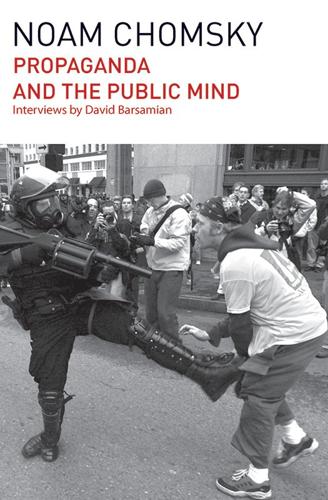
Propaganda and the Public Mind
by
Noam Chomsky
and
David Barsamian
Published 31 Mar 2015
So the recipient countries, the country from which the capital was flying, agreed to block capital flight. If there are a couple of rich countries like the United States that won’t play the game, then the game’s over. But these are social policies that are under potential control. There have been technical proposals around for twenty-five years, like the Tobin tax, that might slow down speculative capital flows. And other things are possible. But the business sector doesn’t want it. Up until now they haven’t wanted it because they’re gaining from it, especially financial capital. They’re gaining a huge amount of profit from it. So they’ve been perfectly happy to see the slowdown of the economy.
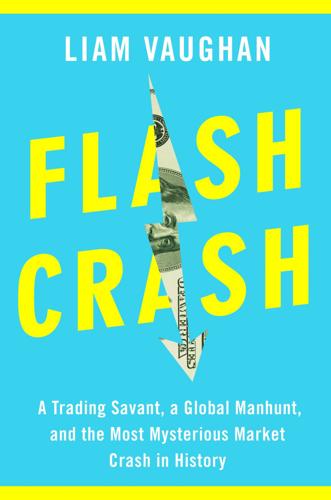
Flash Crash: A Trading Savant, a Global Manhunt, and the Most Mysterious Market Crash in History
by
Liam Vaughan
Published 11 May 2020
The SEC undertook its own review of equity markets and invited parties to submit their thoughts. Similar inquiries took place in Germany, Italy, and the UK. After years spent hiding in the shadows, HFT was in the spotlight. Proposals for reform varied widely. One of the more contentious was a transaction tax, or “Tobin Tax,” which, depending on its size, would either make it uneconomical for HFT firms to place and cancel so many orders, or at least raise some additional funds for the government. Another was bringing in “speed bumps” to slow down orders, eradicating the HFTs’ advantage. Other options included making HFT firms register the code for their strategies, levying fines for canceling too many orders, and forcing market makers to quote prices regardless of how volatile conditions got.
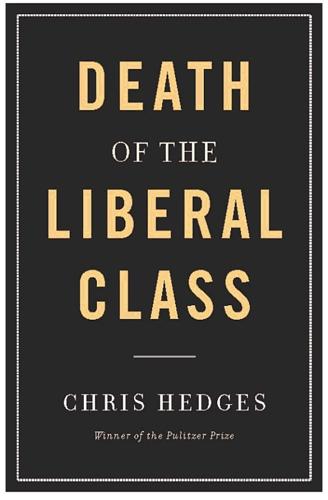
Death of the Liberal Class
by
Chris Hedges
Published 14 May 2010
It is to surrender to the dehumanizing ideology of totalitarian capitalism. Acts of resistance keep alive another way of being. They sustain our integrity and empower others, whom we may never meet, to stand up and carry the flame we pass to them. No act of resistance is useless, whether it is refusing to pay taxes, fighting for a Tobin tax, working to shift the neoclassical economics paradigm, revoking a corporate charter, holding global Internet votes, or using Twitter to catalyze a chain reaction of refusal against the neoliberal order. We must resist and trust that resistance is worthwhile. Our communities will sustain us, emotionally and materially.
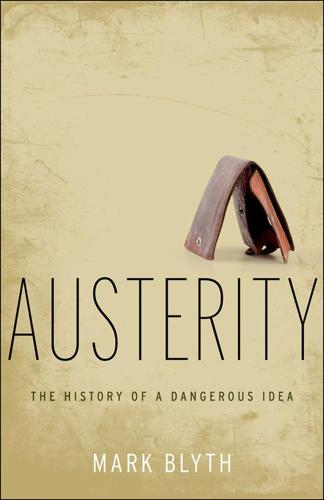
Austerity: The History of a Dangerous Idea
by
Mark Blyth
Published 24 Apr 2013
Not because of Occupy Wall Street and not because of my personal preferences, but because it’s so much easier and more effective to do than it is to enforce self-defeating austerity that it’s bound to happen. Speaking of taxes, it’s not just going to be sophisticated quasi-hidden liquidation and/or so-called Tobin taxes on financial transactions that are levied, either. Personal taxes have room to grow, too—especially in the United States. A recent analysis from the Congressional Research Service, which gives us an idea of what Congress might be thinking, noted that top marginal rate of income tax in the United States in the 1940s an 1950s, the heyday of US power, “was typically above 90%” while “the top capital gains tax was 25%.”
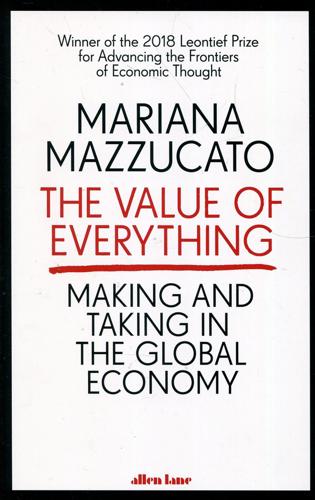
Value of Everything: An Antidote to Chaos The
by
Mariana Mazzucato
Published 25 Apr 2018
Annualized, the total comes to more than 2 trillion shares - in dollar terms, I estimate the trading to be worth some $33 trillion. That figure, in turn, is 220 per cent of the $15 trillion market capitalisation of U.S. stocks.41 Moreover, this massive trading is often between fund managers, which makes it truly a zero-sum game within the industry. The idea of a financial transaction tax (related to the Tobin Tax, named after the Nobel Prizewinning economist James Tobin, an early advocate) is to reduce this ‘churn' and make investors hold their stocks for longer, by raising the cost of each sale. It satisfies the conditions for an efficient tax in deterring a practice which imposes deadweight costs - the main obstacle to its introduction being that all large exchanges would have to impose it, to stop trade migrating to those that choose not to.
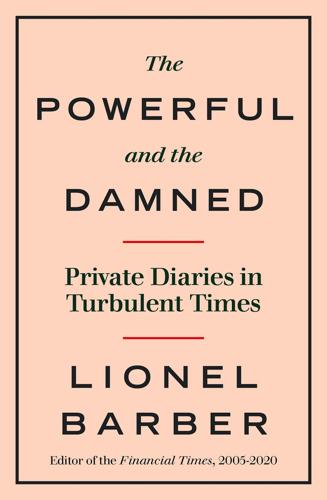
The Powerful and the Damned: Private Diaries in Turbulent Times
by
Lionel Barber
Published 5 Nov 2020
The title refers to large bets placed against the market. 5 Will Lewis, an ebullient FT reporter, succeeded the author as news editor in 2000 before joining the Sunday Times and Daily Telegraph, where he soon became editor, rising to be CEO of Dow Jones and publisher of the Wall Street Journal (2014–20). 6 Lebedev was nominated as a crossbench life peer by Boris Johnson in July 2020, a move which drew charges of cronyism. 7 The Tobin tax was a small levy on foreign currency exchanges aimed at reducing incentives for high-frequency trading. First proposed in the 1970s by Nobel Prize-winning economist James Tobin, it was supposed to increase financial stability and make the banks pay their share. 8 Kevin Rudd, born in the small town of Nambour on Queensland’s ‘sunshine coast’, led Australia’s Labour party to victory in 2007.
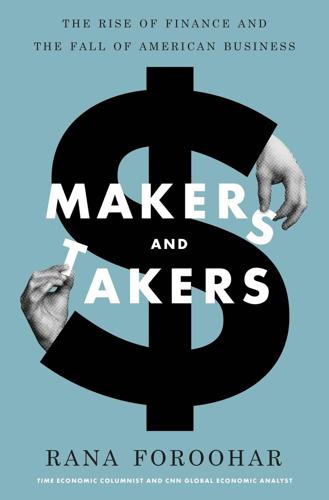
Makers and Takers: The Rise of Finance and the Fall of American Business
by
Rana Foroohar
Published 16 May 2016
We also need to better regulate the shadow banking sector, end offshore banking, and close tax and corporate filing loopholes that enable the kind of creative accounting that hides not only what’s on corporate balance sheets but also how much CEOs and other executives are being paid in options. This measure would go a long way toward creating more transparency in finance and curtailing the issues of short-termism that were discussed in chapter 4. A financial transaction tax—akin to a proposed Tobin tax—could likewise help in this respect, by forcing banks to pay a small fee for each trade in bonds, stocks, and derivatives that they do, many of which (as this book has explored) have little to no benefit to the real economy anyway.4 Beyond this, we need to end the cult of “experts” in finance and open the conversation about how and for whom the financial system should work to a much broader group of people—far beyond the small priesthood of financiers, politicians, and regulators who tend to share the same finance-centric view of the economy.
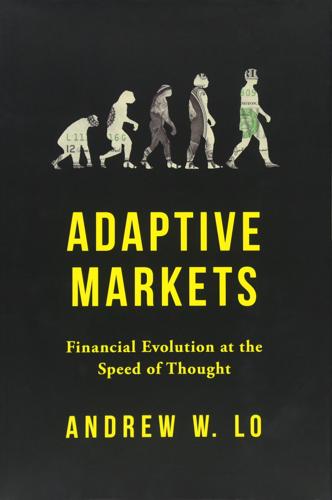
Adaptive Markets: Financial Evolution at the Speed of Thought
by
Andrew W. Lo
Published 3 Apr 2017
Gary, 262 short selling, 26, 223, 229–230, 233, 326 Siegel, Jeremy, 253, 255 Siegel, Stephan, 161 sigma (measure), 232 SIMON (risk management process), 388–389, 392 Simon, Herbert, 172; academic background of, 177; artificial intelligence research by, 101, 181, 182; bounded rationality notion of, 34, 36, 185, 188, 209, 213, 215, 217; environmental complexity viewed by, 198; heuristics notion of, 66, 179, 217; optimization viewed skeptically by, 178–180, 183; satisficing conceived by, 180–182 Simons, James, 6, 224, 225, 244, 277, 350 Sinclair, Upton, 319 Singapore, 411 single-photon emission computed tomography (SPECT), 102 Siri, 132, 396 Sirri, Erik, 308, 311 60/40s rule, 252, 255 skin conductance, 93–94 slot machines, 91–92 Slovic, Paul, 84 “SM” (patient incapable of fear), 83, 104, 106, 107, 144, 158, 323 small-cap stocks, 250, 259 smallpox, 344 smiling, 105 Smith, Adam, 28, 211 Smith, David V., 100 Sobel, Russell, 206 social Darwinism, 215 social exclusion, 85–86 social media, 55, 270, 405 Société Générale, 60–61 Society of Mind, The (Minsky), 132–133 sociobiology, 170–174, 216–217 Sociobiology (Wilson), 170–171 Solow, Herbert, 395 Soros, George, 6, 219, 222–223, 224, 227, 234, 244, 277 sovereign wealth funds, 230, 299, 409–410 Soviet Union, 411 Space Shuttle Challenger, 12–16, 24, 38 specialization, 217 speech synthesis, 132 Sperry, Roger, 113–114 “spoofing,” 360 Springer, James, 159 SR-52 programmable calculator, 357 stagflation, 37 Standard Portfolio Analysis of Risk (SPAN), 369–370 Stanton, Angela, 338 starfish, 192, 242 Star Trek, 395–397, 411, 414 stationarity, 253–255, 279, 282 statistical arbitrage (“statarb”), 284, 286, 288–291, 292–293, 362 statistical tests, 47 Steenbarger, Brett, 94 Stein, Carolyn, 69 sterilization, 171, 174 Stiglitz, Joseph, 224, 278, 310 Stocks for the Long Run (Siegel), 253 stock splits, 24, 47 Stone, Oliver, 346 Stone Age, 150, 163, 165 stone tools, 150–151, 153 stop-loss orders, 359 Strasberg, Lee, 105 stress, 3, 75, 93, 101, 122, 160–161, 346, 413–415 strong connectedness, 374 Strong Story Hypothesis, 133 Strumpf, Koleman, 39 “stub quotes,” 360 subjective value, 100 sublenticular extended amygdala, 89 subprime mortgages, 290, 292, 293, 297, 321, 327, 376, 377, 410 Sugihara, George, 366 suicide, 160 Sullenberger, Chesley, 381 Summers, Lawrence (Larry), 50, 315–316, 319–320, 379 sunlight, 108 SuperDot (trading system), 236 supply and demand curves, 29, 30, 31–33, 34 Surowiecki, James, 5, 16 survey research, 40 Sussman, Donald, 237–238 swaps, 243, 298, 300 Swedish Twin Registry, 161 systematic bias, 56 systematic risk, 194, 199–203, 204, 205, 250–251, 348, 389 systemic risk, 319; Bank of England’s measurement of, 366–367; government as source of, 361; in hedge fund industry, 291, 317; of large vs. small shocks, 315; managing, 370–371, 376–378, 387; transparency of, 384–385; trust linked to, 344 Takahashi, Hidehiko, 86 Tanner, Carmen, 353 Tanzania, 150 Tartaglia, Nunzio, 236 Tattersall, Ian, 150, 154 Tech Bubble, 40 telegraphy, 356 Tennyson, Alfred, Baron, 144 testosterone, 108, 337–338 Texas hold ’em, 59–60 Texas Instruments, 357, 384 Thackray, John, 234 Thales, 16 Théorie de la Spéculation (Bachelier), 19 theory of mind, 109–111 thermal homeostasis, 367–368, 370 This Time Is Different (Reinhart and Rogoff), 310 Thompson, Robert, 1, 81–82, 83, 103–104 three-body problem, 214 ticker tape machine, 356 tight coupling, 321, 322, 361, 372Tiger Fund, 234 Tinker, Grant, 395 Tobin tax, 245 Tokugawa era, 17 Tooby, John, 173, 174 tool use, 150–151, 153, 162, 165 “toxic assets,” 299 trade execution, 257, 356 trade secrets, 284–285, 384 trading volume, 257, 359 transactions tax, 245 Treynor, Jack, 263 trial and error, 133, 141, 142, 182, 183, 188, 198, 265 Triangle Shirtwaist Fire, 378–379 tribbles, 190–205, 216 Trivers, Robert, 172 trolley dilemma, 339 Trusty, Jessica, 120 Tversky, Amos, 55, 58, 66–67, 68–69, 70–71, 90, 106, 113, 388 TWA Flight 800, 84–85 twins, 159, 161, 348 “two-legged goat effect,” 155 UBS, 61 Ultimatum Game, 336–338 uncertainty, 212, 218; risk vs., 53–55, 415 unemployment, 36–37 unintended consequences, 7, 248, 269, 330, 358, 375 United Kingdom, 222–223, 242, 377 University of Chicago, 22 uptick rule, 233 Urbach-Wiethe disease, 82–83 U.S.